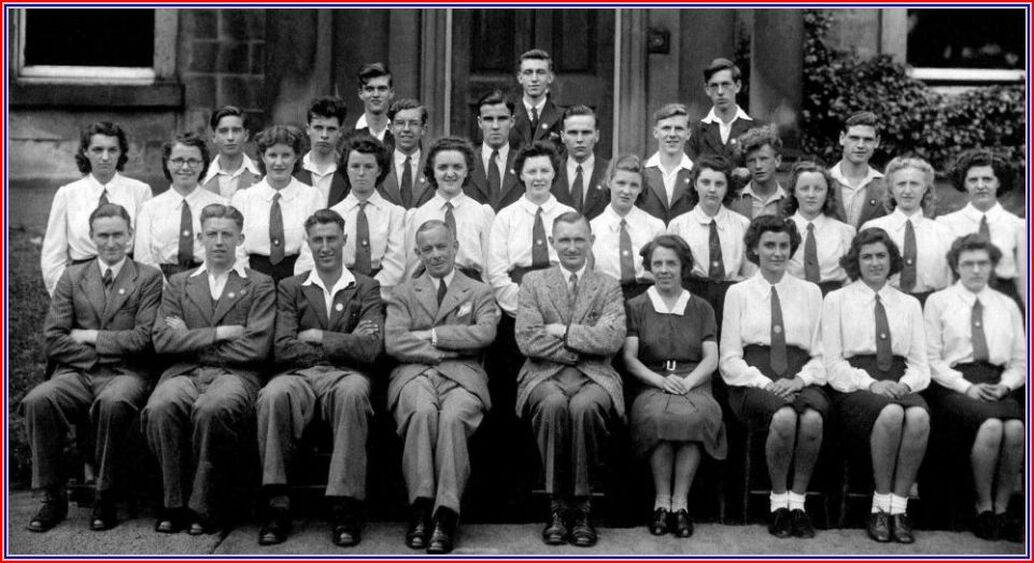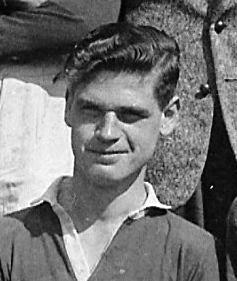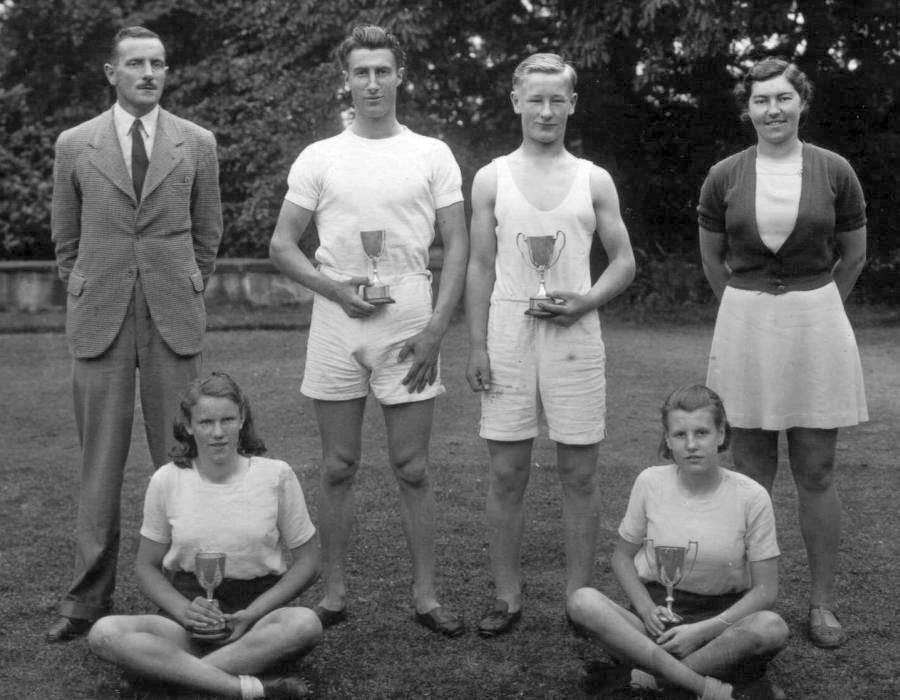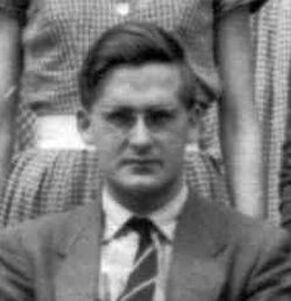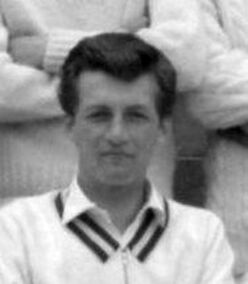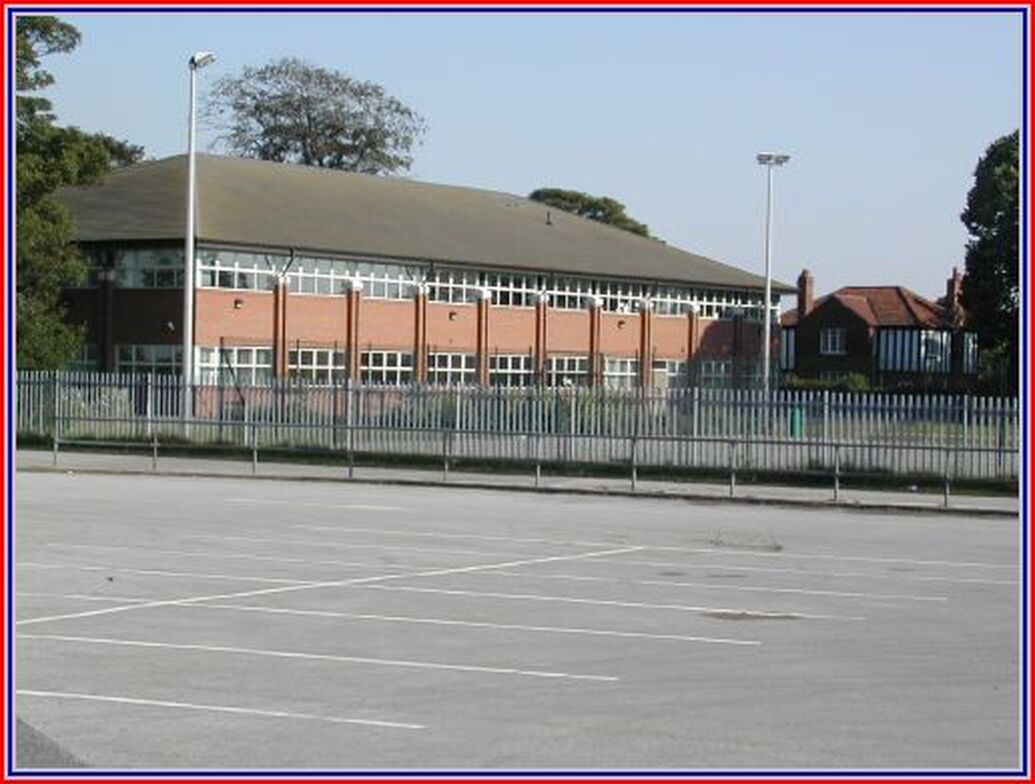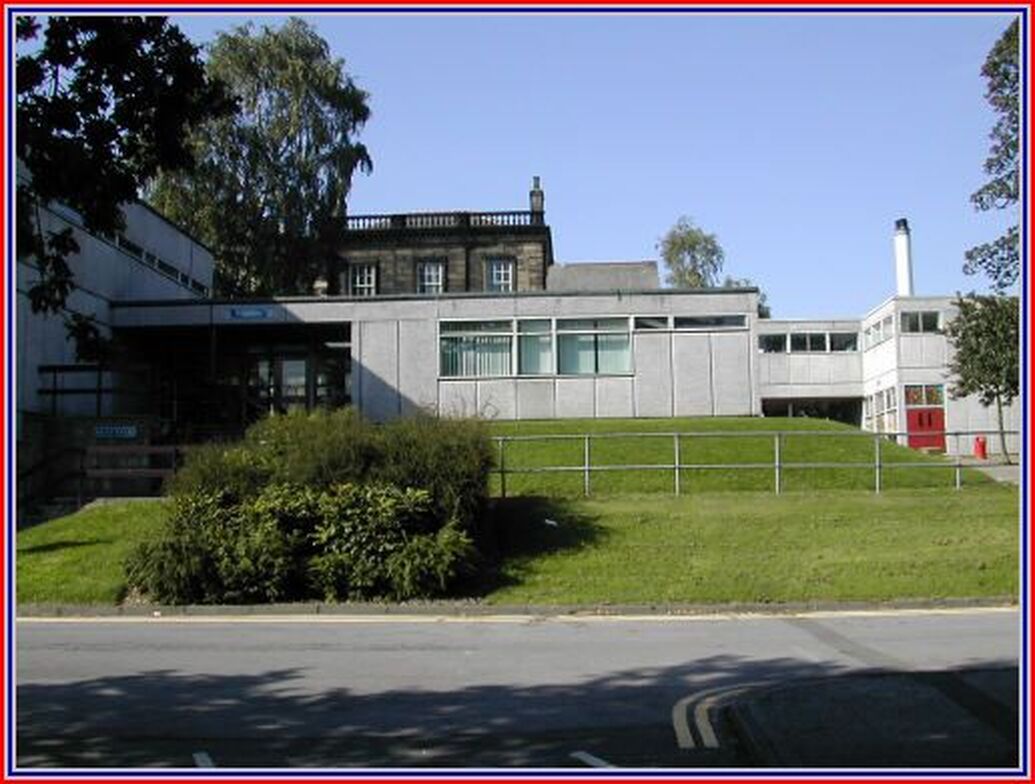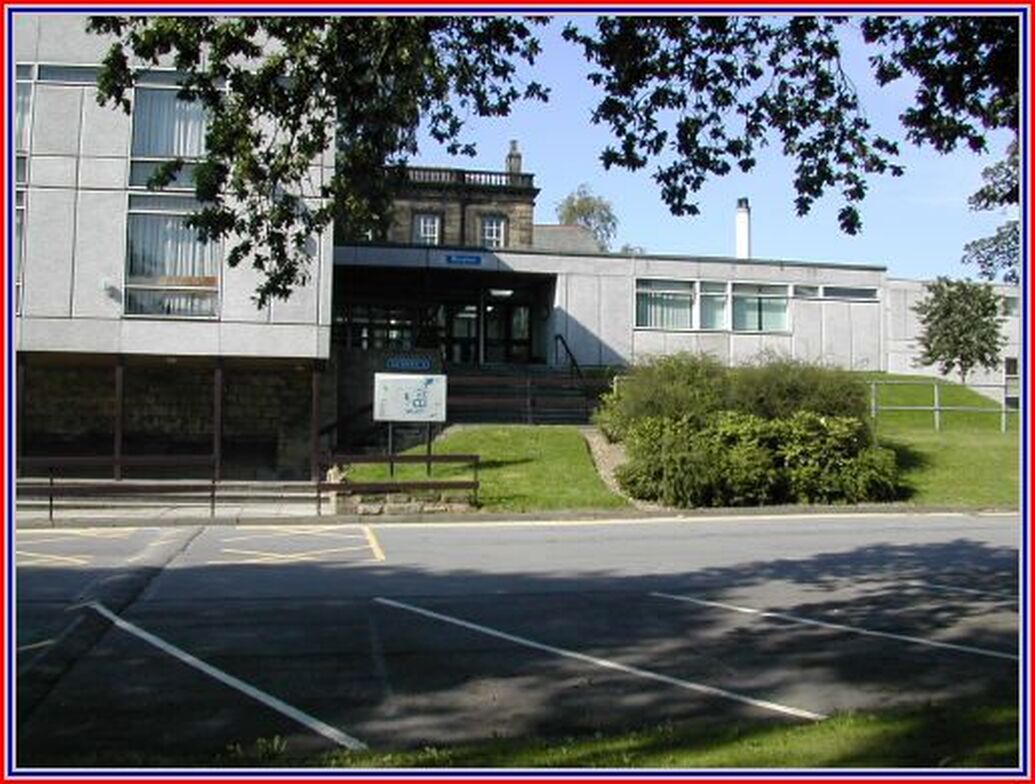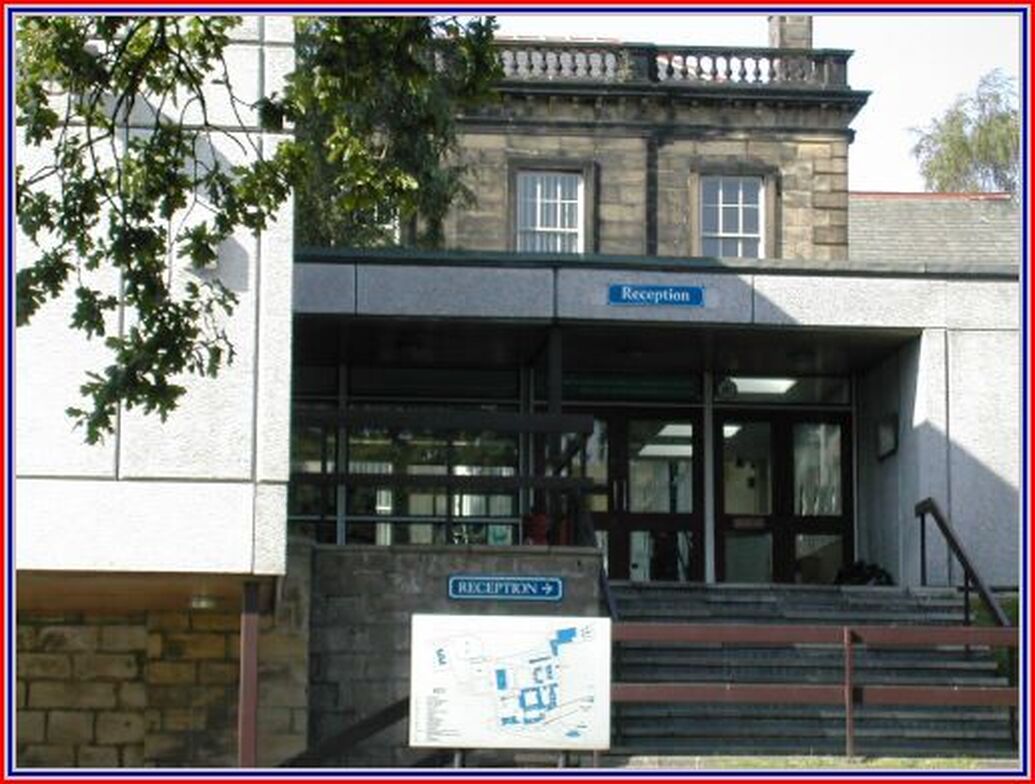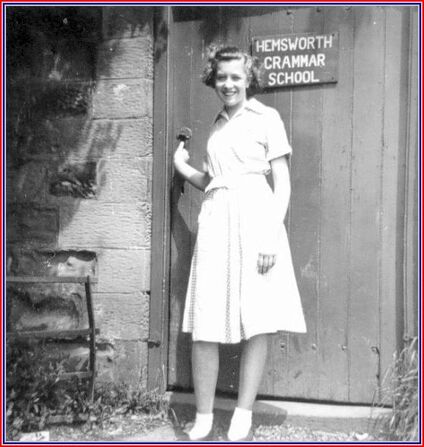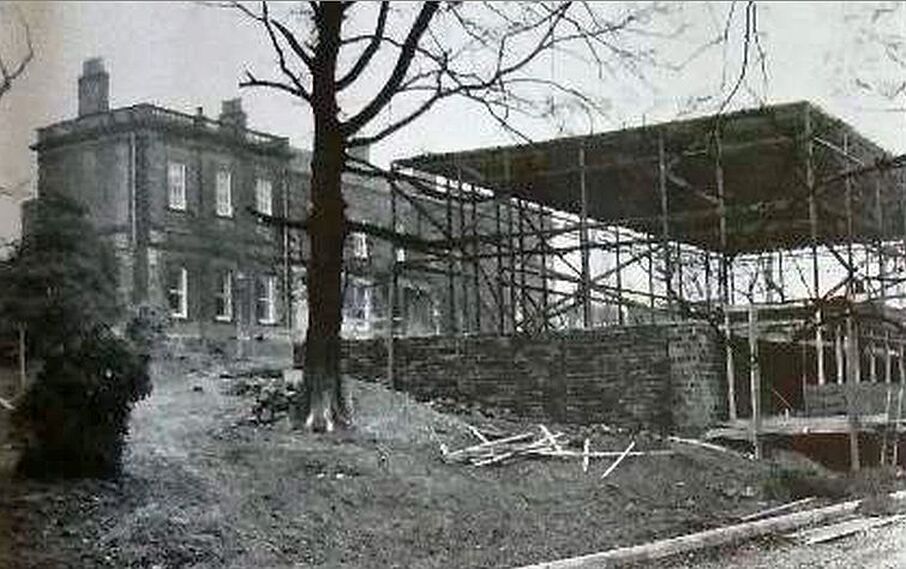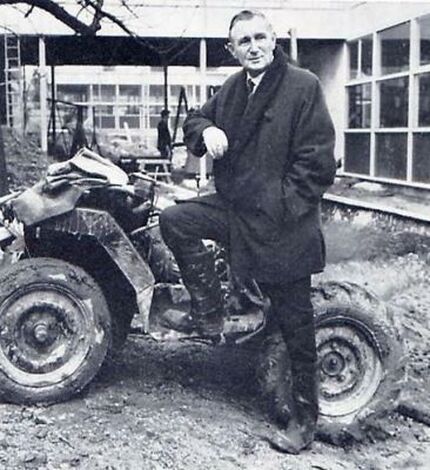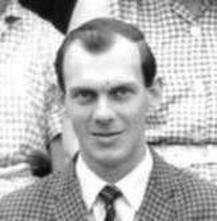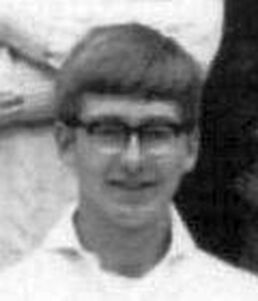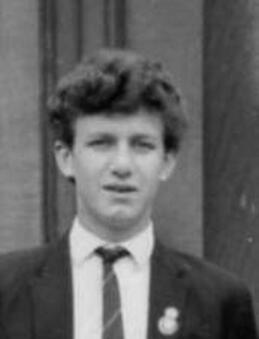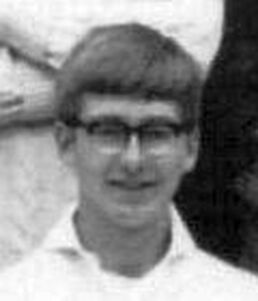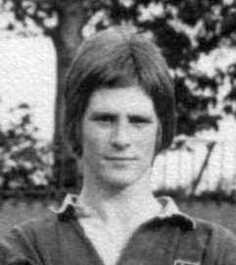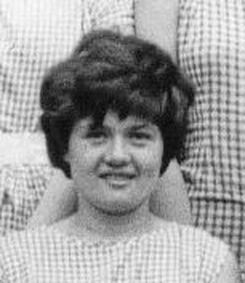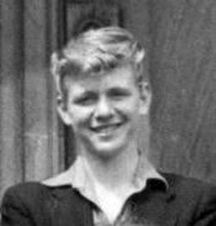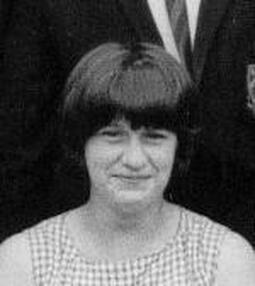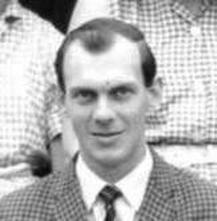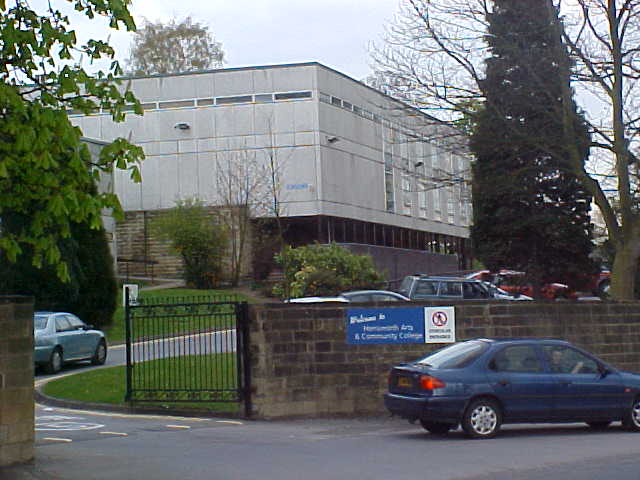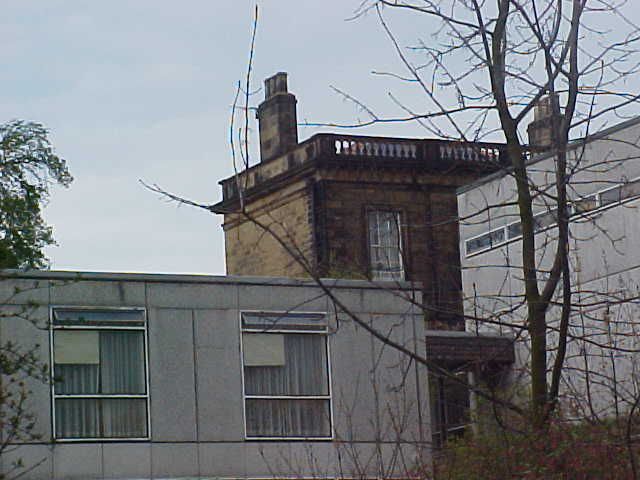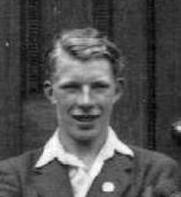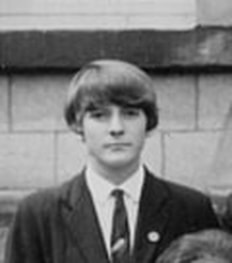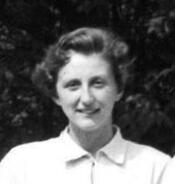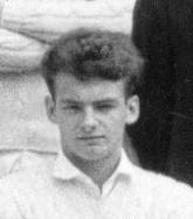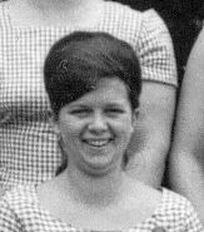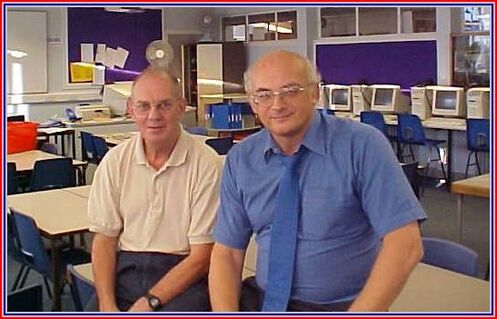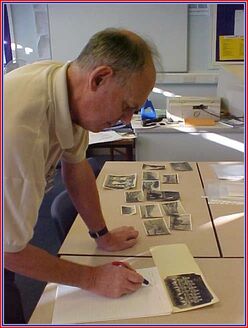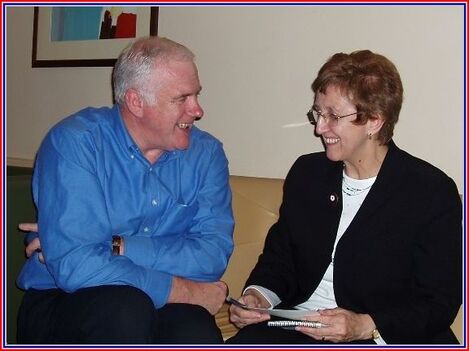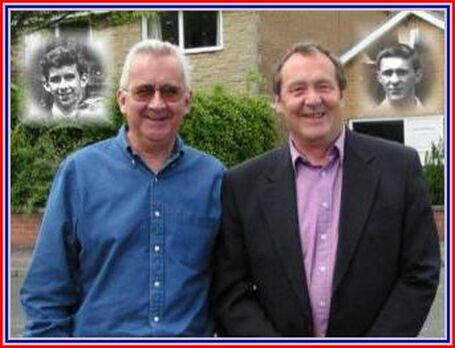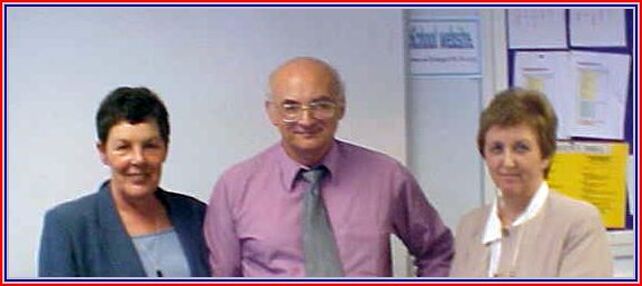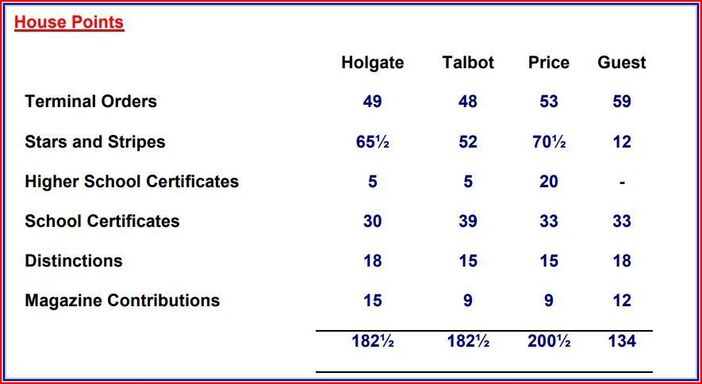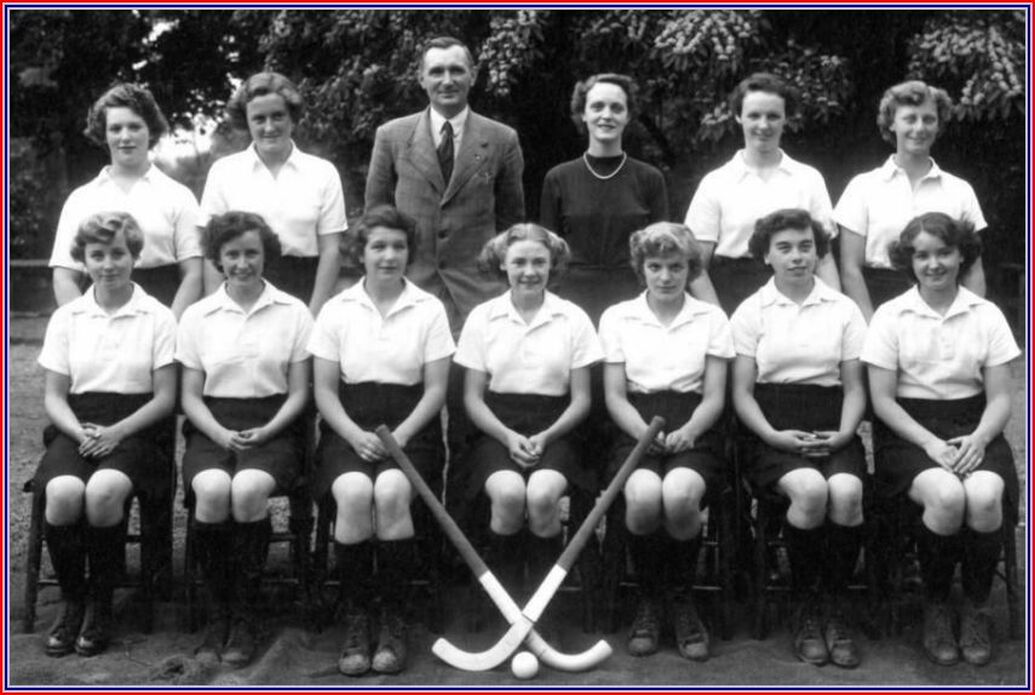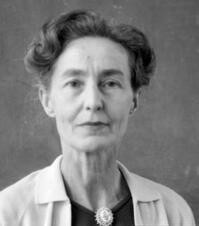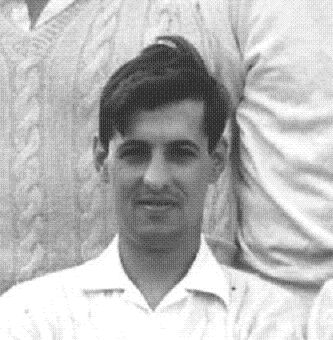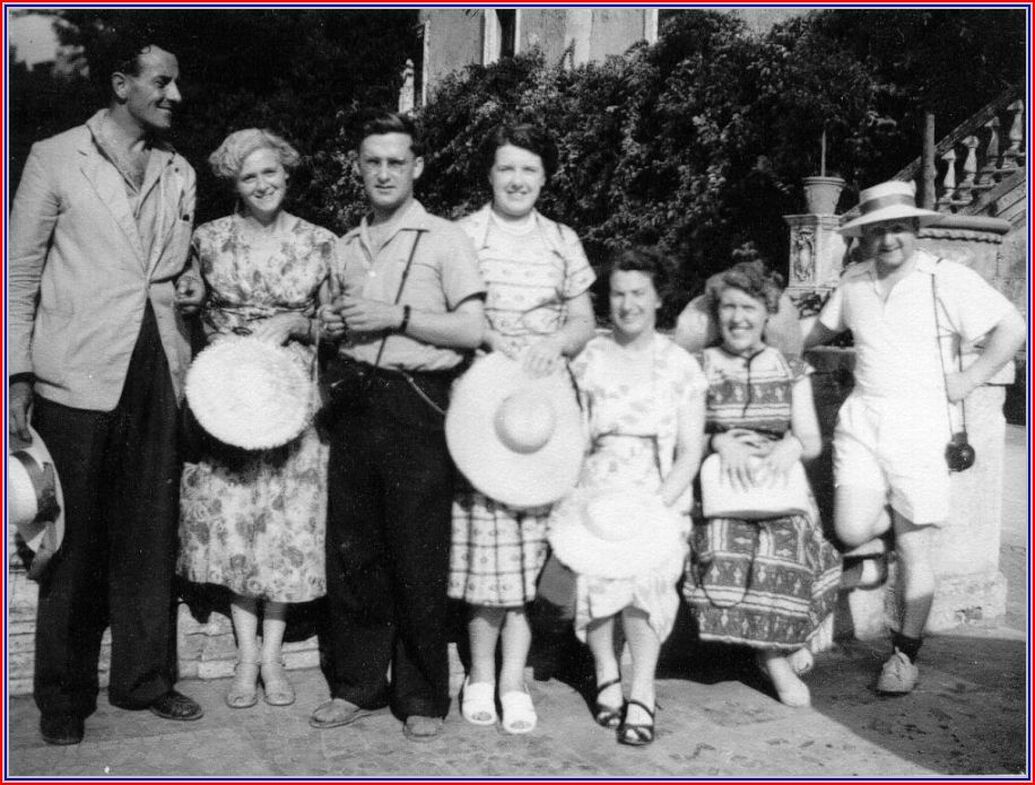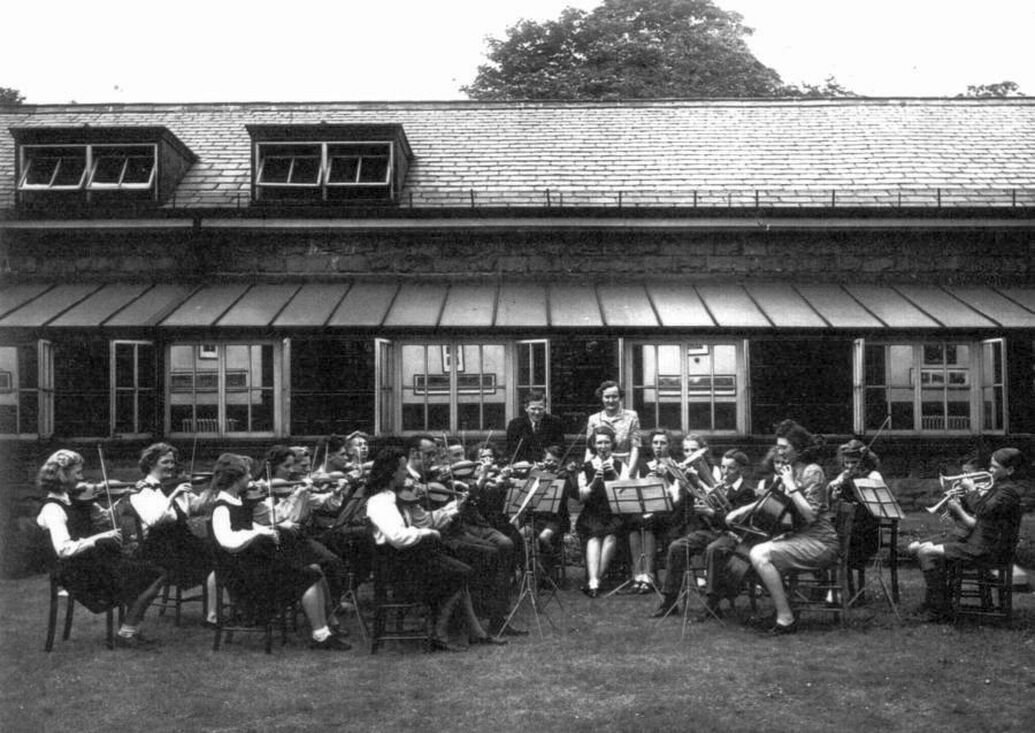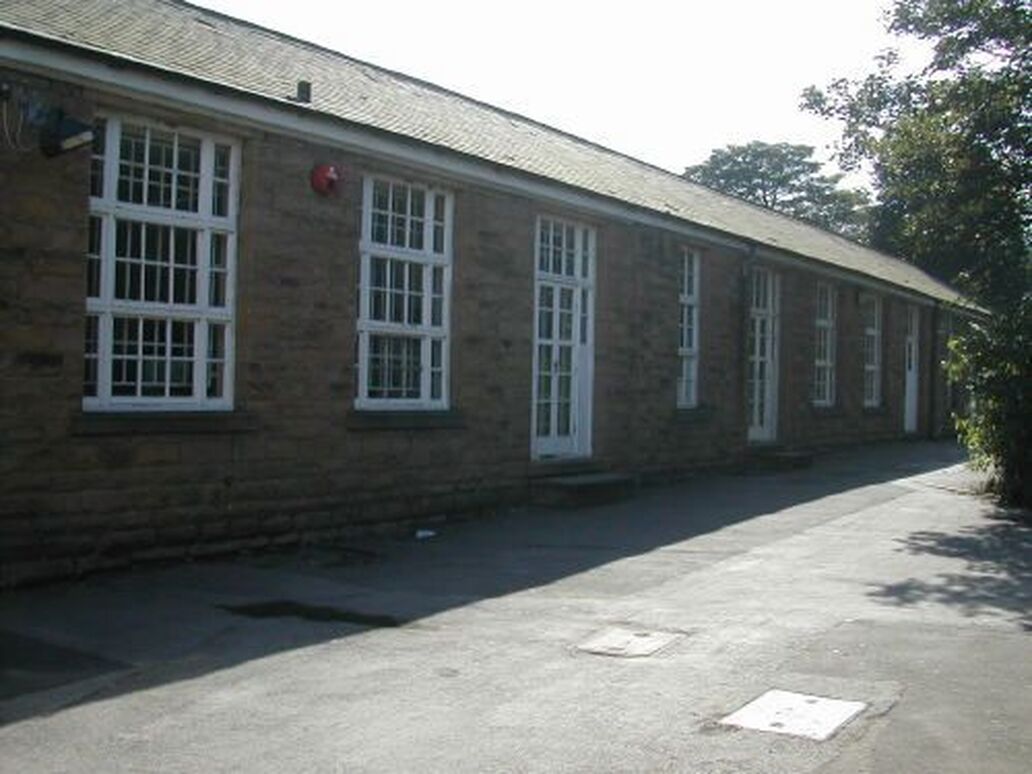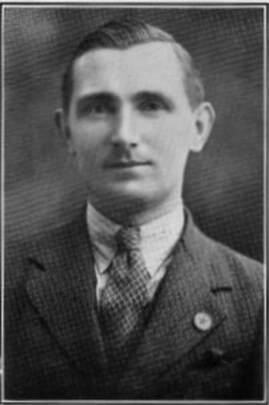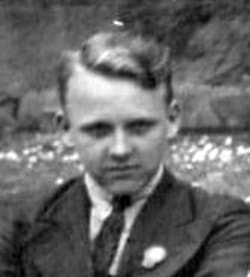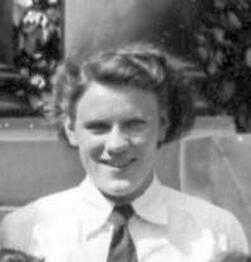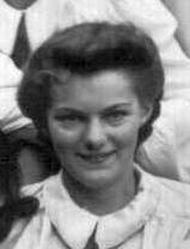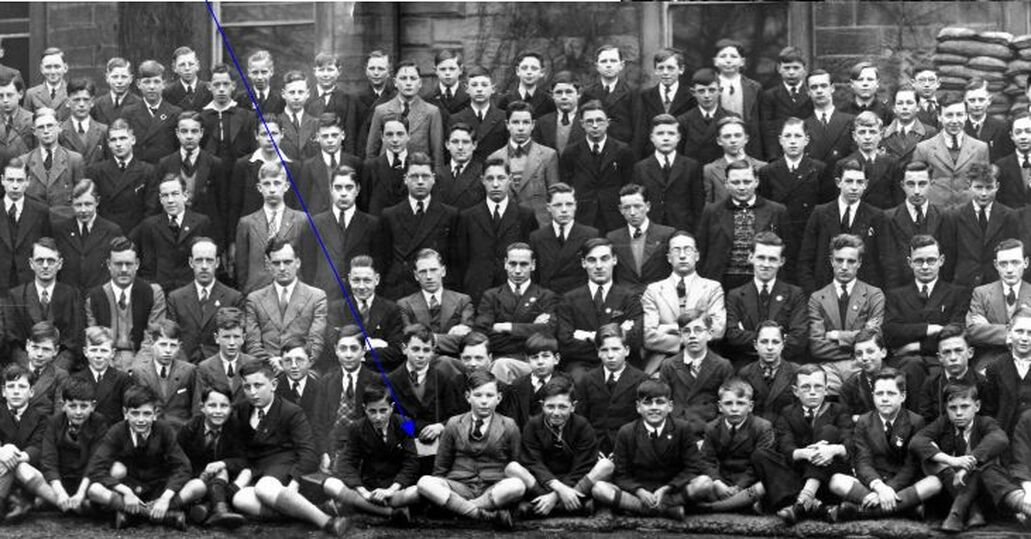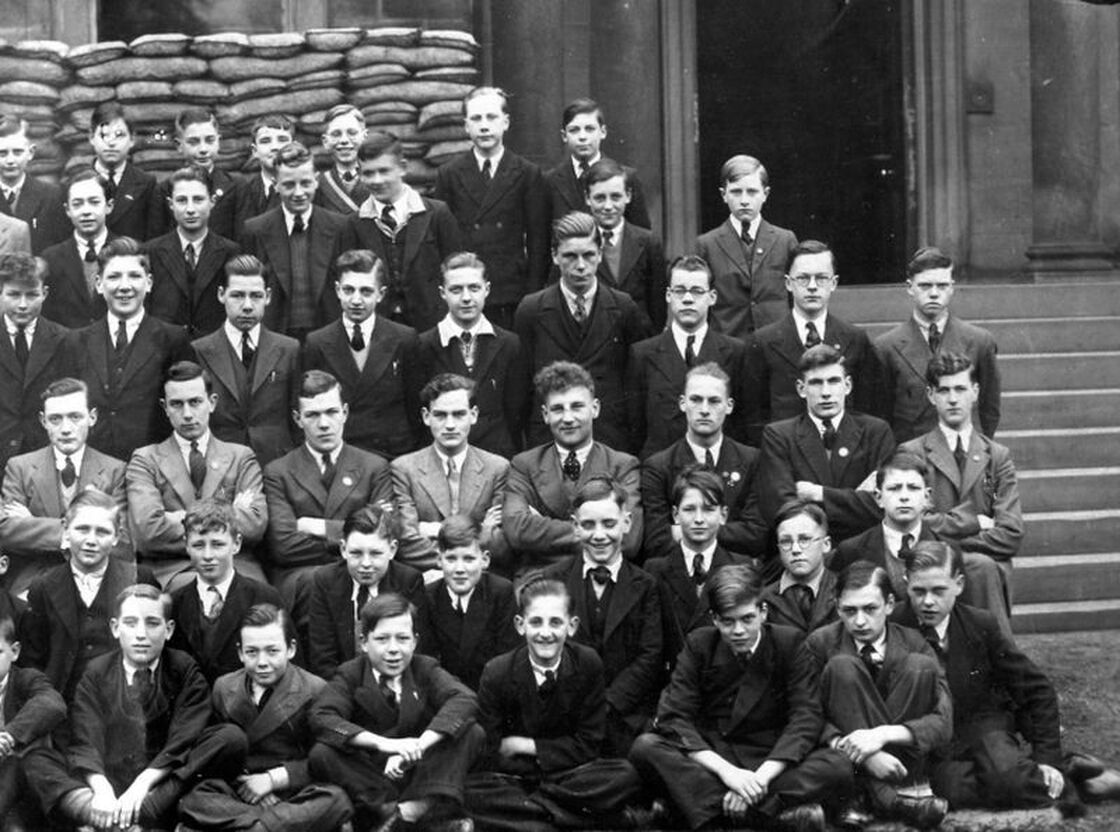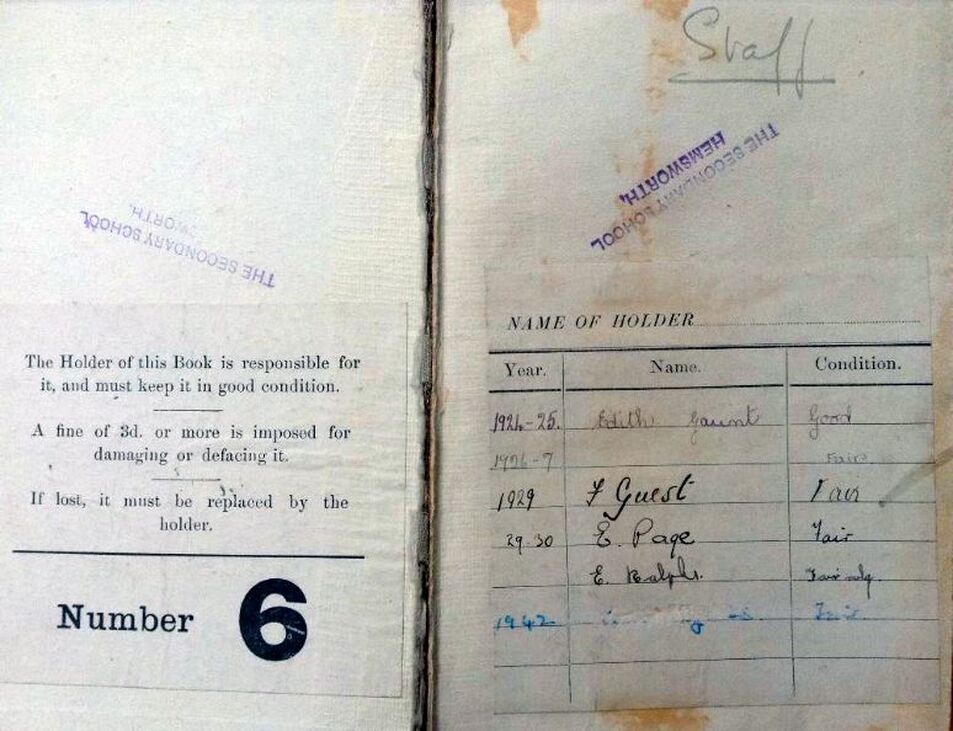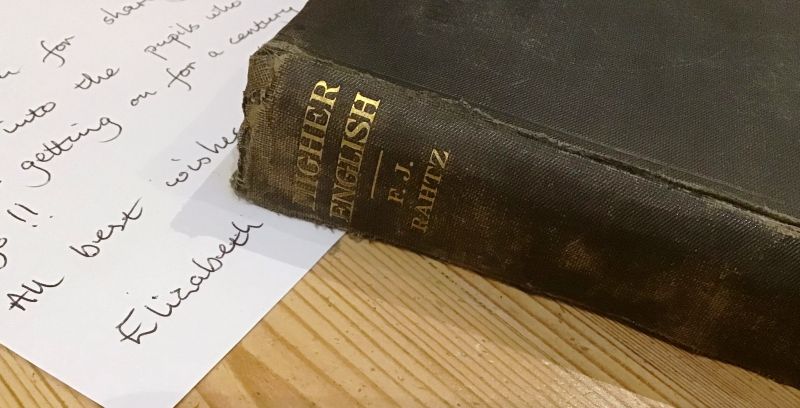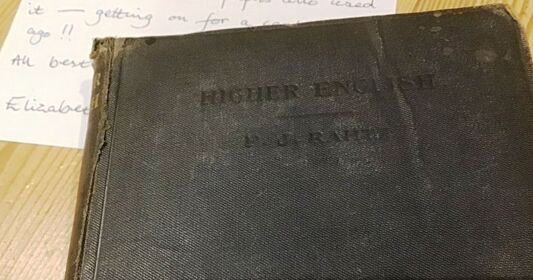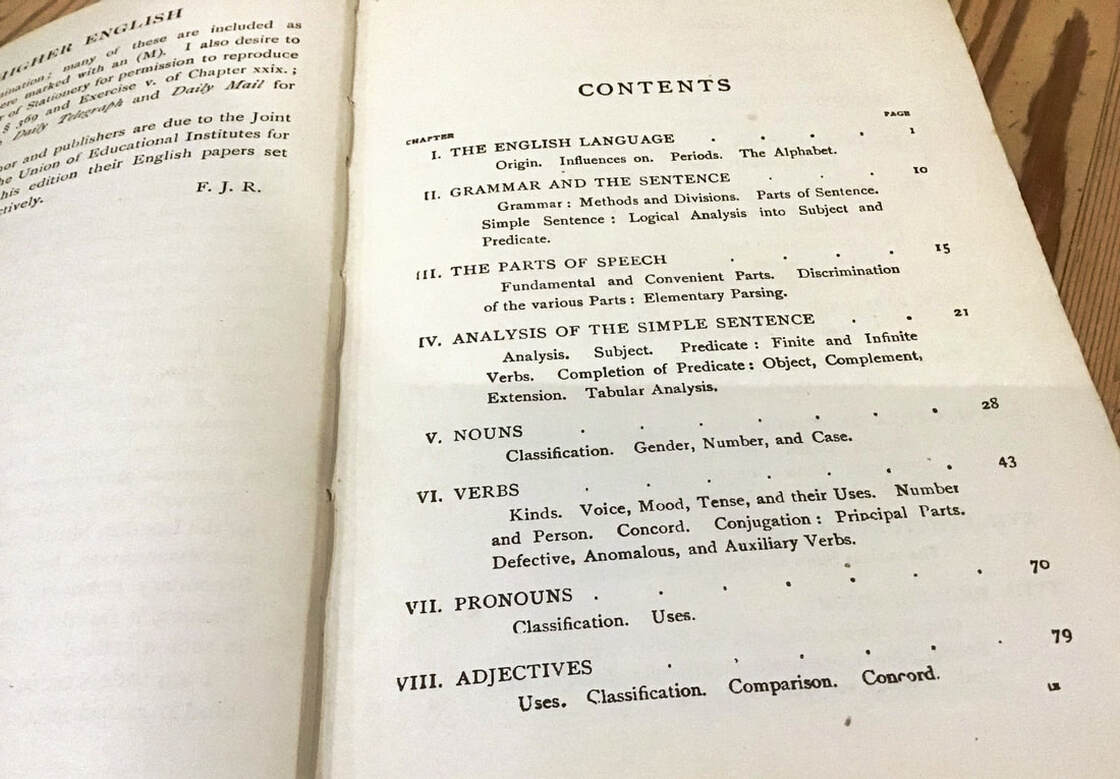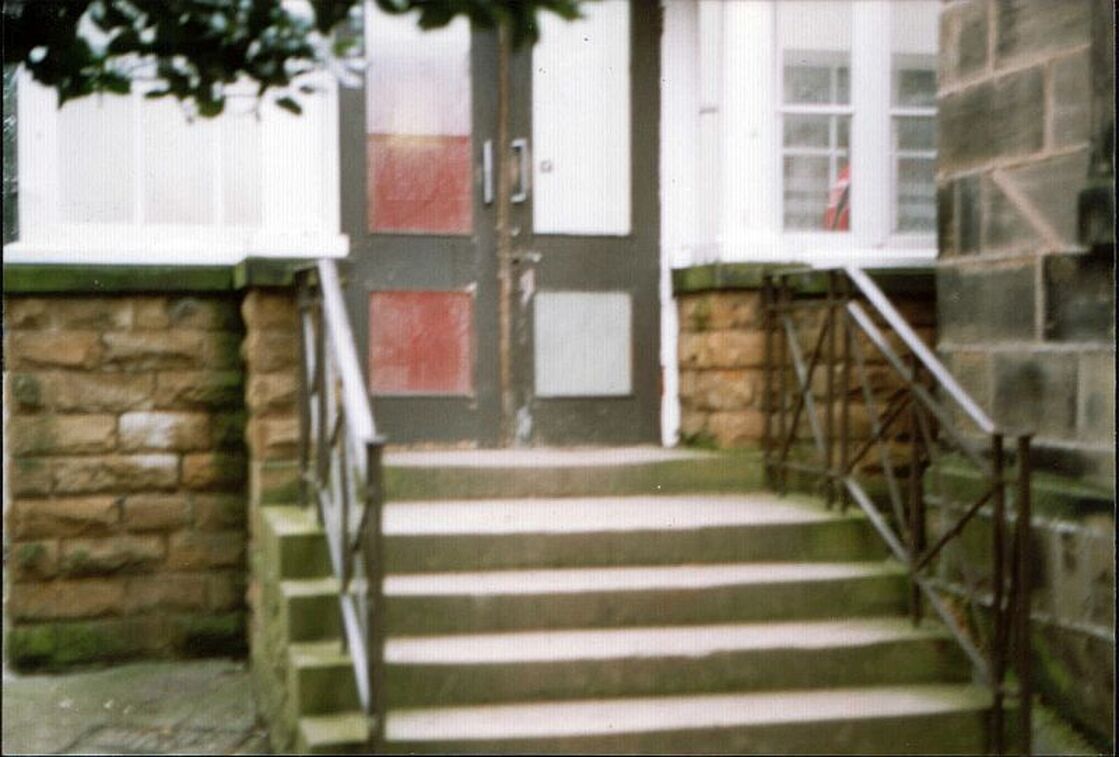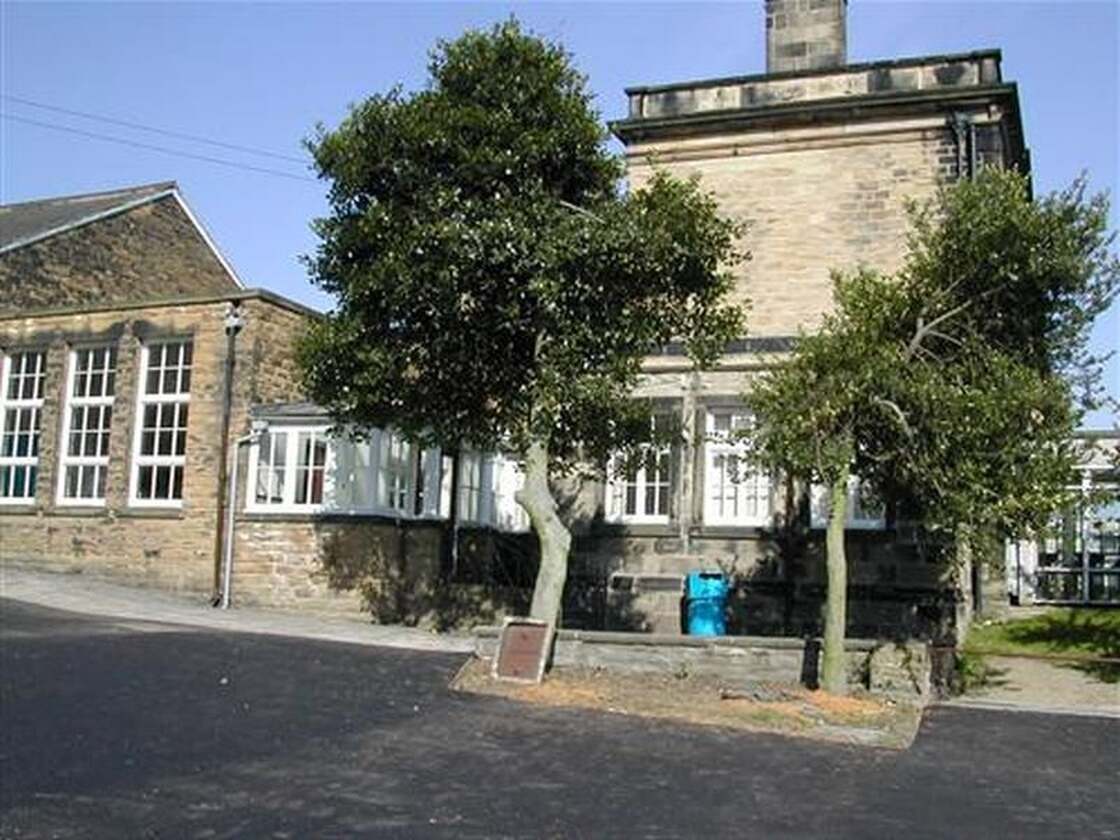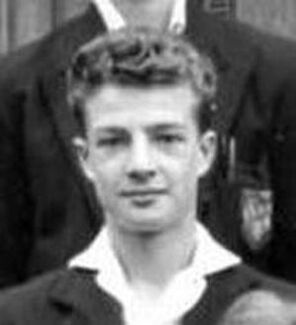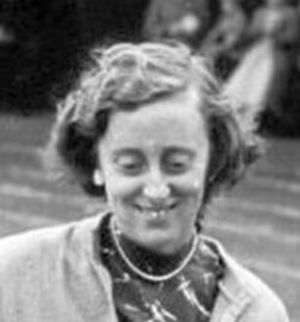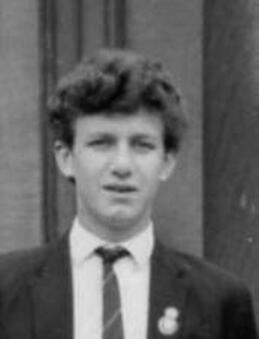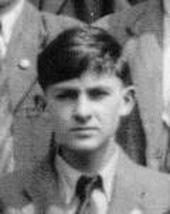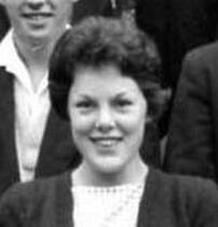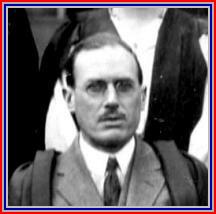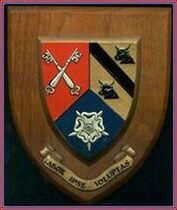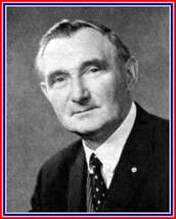A Personal View 3
Status: 15 items
Status: 15 items
Two experiences formed my life, my years at H.G.S. and my time in the Royal Navy. The total number of years is minimal compared with my lifespan but the impact of my education in these two systems, so different yet similar in so many ways. The philosophy was so similar, the team spirit and the discipline followed by everyone.
Geoff Booth (HGS 1939-1945)
Geoff Booth (HGS 1939-1945)
Prefects 1944-45
Back Row L-R: Frank Noble, George Rogers, Young J.A.S
Third Row L-R: Tony Atkinson, Robin Batty, Reginald Brookes, Reginald Callaghan, Robinson, Cliff Hale, Ineson, Geoff Booth
Second Row L-R: Joyce Burton, Olive Mellor, Viva Wyatt, Betty Smart, Madge Green, Betty Hill, Marian Lakin, Dorothy Marks, Brenda Swinbank, Iris Ventom, Dorothy Wass
First Row L-R: Anthony Jagger, Joe Bailey, Leslie Tate, Mr. Crossland, Mr. Hamilton, Miss Shortridge, Cynthia Hemingway, Frances Hemingway, Joan Maw
Third Row L-R: Tony Atkinson, Robin Batty, Reginald Brookes, Reginald Callaghan, Robinson, Cliff Hale, Ineson, Geoff Booth
Second Row L-R: Joyce Burton, Olive Mellor, Viva Wyatt, Betty Smart, Madge Green, Betty Hill, Marian Lakin, Dorothy Marks, Brenda Swinbank, Iris Ventom, Dorothy Wass
First Row L-R: Anthony Jagger, Joe Bailey, Leslie Tate, Mr. Crossland, Mr. Hamilton, Miss Shortridge, Cynthia Hemingway, Frances Hemingway, Joan Maw
Table of Contents
|
1. Thoughts from Geoff Booth
2. Sports Day 3. Changes to the front of the Old School site. 4. The Changeover HGS to HHS 1967-68 5. Changes from HGS to HHS |
6. The last singing of the School Song
7. This website 8. The HGS System 9. Formal and Informal 10. Music in the Quadrangle by the Top Corridor |
11. Not an easy start as Headmaster for RWH
12. One of Miss Smith's books 13. The School Caretaker 14. Options 15. Changes |
1. Thoughts from Geoff Booth
On Tuesday mornings there was no main assembly, we had house meetings. Past the Library then on the right up the steps into Room11. Eventually I became House Captain looking over the young sprogs who would soon fill your shoes. There was a fireplace and over it a quotation from Voltaire, it said:
“I disagree with what you are saying but I will fight to the Death to defend your right to say it.”
One of the tenets which made H.G.S. what it was, and which made me, a grocer's son from Fitzwilliam, into something I could never have aspired to let alone have achieved.
Two experiences formed my life, my years at H.G.S. and my time in the Royal Navy. The total number of years is minimal compared with my lifespan but the impact of my education in these two systems, so different yet similar in so many ways. The philosophy was so similar, the team spirit and the discipline followed by everyone. The man in the next hammock, even though you hated him, might save your life the next day.
All this was due to Russell William Hamilton, Percy Crossland, Les. Collette, Daddy Austin, Jas Storer, the Misses Prince, Bromley, Townsend, Shortridge et al.
The people who did not have the privilege of attending Hemsworth Grammar School missed out and we are a very lucky few.
Geoff Booth (1939-1945)
“I disagree with what you are saying but I will fight to the Death to defend your right to say it.”
One of the tenets which made H.G.S. what it was, and which made me, a grocer's son from Fitzwilliam, into something I could never have aspired to let alone have achieved.
Two experiences formed my life, my years at H.G.S. and my time in the Royal Navy. The total number of years is minimal compared with my lifespan but the impact of my education in these two systems, so different yet similar in so many ways. The philosophy was so similar, the team spirit and the discipline followed by everyone. The man in the next hammock, even though you hated him, might save your life the next day.
All this was due to Russell William Hamilton, Percy Crossland, Les. Collette, Daddy Austin, Jas Storer, the Misses Prince, Bromley, Townsend, Shortridge et al.
The people who did not have the privilege of attending Hemsworth Grammar School missed out and we are a very lucky few.
Geoff Booth (1939-1945)
Terry McCroakam
An excellent comment from Geoff Booth and I am sure many of us who went to HGS thought the same later in life. I know I did and still do, even more so when I read articles on the HGS website.
An excellent comment from Geoff Booth and I am sure many of us who went to HGS thought the same later in life. I know I did and still do, even more so when I read articles on the HGS website.
2. Sports Day
Back Row L-R: Mr Leonard, Leslie Tate, Derek Wilkinson, Miss Freestone
Front seated L-R: Mary Griffiths, Eunice Worrall
Front seated L-R: Mary Griffiths, Eunice Worrall
Here is a group from 1943-44. They achieved excellence on Sports Day. Down the years many people did really good performances on Sports Day in front of both friends and family. In my last year (1962) Mr Hamilton invited my parents to Sports Day and they spent much of the day with Mr and Mrs Hamilton. It made the events I was in that bit more special.
Looking at the Sports Day results since the 1920s (on the HGS website) I am reminded that it is not just the winners who should be celebrated but all competitors who took part in both Heats and Sports Days. The days were very special school-family events. In fact Sports Day was a family event and the community was that of the school.
Looking at the Sports Day results since the 1920s (on the HGS website) I am reminded that it is not just the winners who should be celebrated but all competitors who took part in both Heats and Sports Days. The days were very special school-family events. In fact Sports Day was a family event and the community was that of the school.
Mr Wharton (Latin)
To me Sports Day was one of the highlights of the school year. They were always very well-organised thanks to Mr Leonard and Mr Tate. The staff were fully occupied in running the "show". If they failed in any way, the day failed. I thought that Mr Wharton as announcer did an excellent job. He was not one given to great jocularity but his "microphone manner" was very good. If the Derby was on that Wednesday (now Saturday), he would announce the result for those who had had a flutter. Brilliant. The competitors respected the day and dressed as they should. If you want to be a competitor, first dress like one.
There was always a smart turn out of competitors and the organisation of the day, apart from new events, did not change. The system was that of Mr Leonard and it ran like clockwork. Which House was going to be successful? I found them to be thoroughly entertaining days. During the day there were also displays of pupils' work in the school. At the end of the day there was the presentation of prizes and then the Parents' Tennis and Cricket Matches.
There was always a smart turn out of competitors and the organisation of the day, apart from new events, did not change. The system was that of Mr Leonard and it ran like clockwork. Which House was going to be successful? I found them to be thoroughly entertaining days. During the day there were also displays of pupils' work in the school. At the end of the day there was the presentation of prizes and then the Parents' Tennis and Cricket Matches.
Reg Bancroft
A great bit of HGS history here. Les Tate and Derek Wilkinson both went on to play professional rugby league. Both returned to the school as PE masters. Les, and later Derek were instrumental in building the awesome rugby culture the school enjoyed, along with George Pacy, Dick Whittaker and others on staff. Trophies were won; individual honours gained; and many from my era went on to play both Union and League at top level. Legends both.
3. Changes to the Head's House outlook and the front of the HGS site.
Photo Riley
Photo Riley
1. The Head's House has a new outlook.
Photo Riley
2. Our school front is just visible
Photo Riley
3. The entry for visitors.
Photo Riley
4. The Reception area
Photo Riley
4. The Changeover HGS to HHS
What happened in 1967-68?
From the School Magazine of the day
What happened in 1967-68?
From the School Magazine of the day
The change to HHS begins - 1967
Of course, the greatest change and one that is causing some anxiety among us, is the re-organisation of the school. Although we are not yet comprehensive the adaptation of the premises, for a comprehensive intake is very much in evidence. The grounds have been ripped, holes torn in walls and outbuildings razed to the ground. No one, however progressive, can see the demolition of trees and the smashing of old stone without some sense of sadness, and it is hard to accept progress as something good when it manifests itself in the destruction of beauty. For many pupils, past and present, the grounds of this school have been a place of quiet and peace. They have exercised an influence over us, and have become part of us. It seems a poor exchange when all we are likely to have in their place is cold, streamlined concrete and glass. With the destruction of the grounds our identity will pass. Our pupils must learn allegiance to another school and our old scholars will have lost a link with the past. It seems that we are old and must make way for a new world - we are obsolete.
Even so, we may regret and question our passing. The nation-wide re-organisation of secondary education is not simply a matter of education. Its educational advantages are unproven and therefore open to doubt. It is perhaps more clearly to be understood as one small part of a much wider revolution, an attempt to level society, to make sure that all men share as equally as possible the benefits and opportunities available.
That all men should be fellows is clearly a laudable aim and it is morally right. If this re-organisation can make our future generations more at one than they have been in the past and if it can make education more effective and democratic, then it will have been justified. Even so, it smacks of a gamble and the stakes are high.
The desire for equality, which is the deep motive of comprehensive education, is a strange and dangerous virtue. If a man of wealth volunteers to give up his riches for the good of others, his action is noble and selfless - he gains a kind of dignity from it. It is quite another matter for a man who has nothing to claim as his right the property of his neighbour - he may produce his philosophical arguments but he is known for a thief. To desire equality is not of itself a virtue; that can only be determined by the motive.
Equality has been called for and has of political necessity been granted. It is now for those who have made this claim to consider their motives. Is their equality a sharing of their child's opportunity with their neighbours' children, or is it the jealous destruction of a system in which their neighbours' children merited and achieved success?
In all this one thing is certain - that Hemsworth Grammar School will cease to exist and a great many people will be the sadder for it.
Editorial Committee
That all men should be fellows is clearly a laudable aim and it is morally right. If this re-organisation can make our future generations more at one than they have been in the past and if it can make education more effective and democratic, then it will have been justified. Even so, it smacks of a gamble and the stakes are high.
The desire for equality, which is the deep motive of comprehensive education, is a strange and dangerous virtue. If a man of wealth volunteers to give up his riches for the good of others, his action is noble and selfless - he gains a kind of dignity from it. It is quite another matter for a man who has nothing to claim as his right the property of his neighbour - he may produce his philosophical arguments but he is known for a thief. To desire equality is not of itself a virtue; that can only be determined by the motive.
Equality has been called for and has of political necessity been granted. It is now for those who have made this claim to consider their motives. Is their equality a sharing of their child's opportunity with their neighbours' children, or is it the jealous destruction of a system in which their neighbours' children merited and achieved success?
In all this one thing is certain - that Hemsworth Grammar School will cease to exist and a great many people will be the sadder for it.
Editorial Committee
Comment
Melvyn Thomas
Not an entirely successful change at all, I would state. Education has become a political plaything, those that partake in the charade of every changing dictat have no real concept of the damage inflicted. Still, that's all behind us now, all we can do is watch and gently shake our heads.
Melvyn Thomas
Not an entirely successful change at all, I would state. Education has become a political plaything, those that partake in the charade of every changing dictat have no real concept of the damage inflicted. Still, that's all behind us now, all we can do is watch and gently shake our heads.
Terry McCroakam
Exactly Melvyn. Things were not so bad while we still had the Grammar School pupils with us and O, A levels to study. Gradually exams changed not just at HHS but throughout the country and now no-one can fail an exam. Inter-school sport as we knew it stopped etc etc.
David Nuttall
It seems that Education has been the fashionable plaything of so many politicians even up to the present day. There are many decisions which have not withstood the test of time and which were expedient or cost effective. Not every decision had at it's heart the very focal point of those they were meant to serve.........the pupils
Anthony Abbott
Hear, hear. HGS for me was a great institution. The vast majority of the pupils were from working class families, mostly mining stock, who were given a top education, much self esteem, and far horizons to aim for, in all sorts of careers. Did the changes improve on that? I doubt it.
David Nuttall
My dad was a coal miner all his life who suffered great hardship after many serious accidents at work. He worked all hours to ensure we were secure at home and at school . My mother remained at home and seemed to be the banker and organiser of the household. I am proud that my parents worked unselfishly on our behalf so that we three children attended Hemsworth Grammar school and we became teachers and Headteachers. My younger sister did not survive the 11 plus exam but did very well at the nearby Secondary School. We benefitted from a Grammar School Education and all it entailed. We are also so very grateful for caring and unselfish parents who sacrificed so much for us.
Janet Andrew
l agree, David. Mum and dad were loving, supportive parents at all times in education. They also went to Sports Days and always encouraged all of us when they could e.g. in Rugby, Cricket, Hockey, Rounders and Athletics. They always attended matches on Saturdays when they could (and Sports Day of course). Parents' interest goes a long way in framing the future for all children.
Janet Andrew
l agree, David. Mum and dad were loving, supportive parents at all times in education. They also went to Sports Days and always encouraged all of us when they could e.g. in Rugby, Cricket, Hockey, Rounders and Athletics. They always attended matches on Saturdays when they could (and Sports Day of course). Parents' interest goes a long way in framing the future for all children.
Larry Parkes
I was at Hemsworth and FORCED to apply for college/university in my 6th form. As a result, my life changed - university, and I have letters in front and after my name. Therefore I worked all over the world. (Go to Australia and New Zealand) - superb places. Thanks to HGS/HHS who changed my life.
Maggie Smith
I totally agree. Hemsworth Grammar School was a fantastic place but I also believe that the staff were very important. I worked in many schools and whether it's a Secondary school or a Grammar school makes no difference if the teaching staff are no good, that comes down to the senior staff and Headteacher. Once I left school in 1963 I lost touch with most people but those I did keep in touch with did very well in life becoming Headteachers, owners of businesses and financial directors in the NHS.
Keith Twigg
Me too. Dad worked down the pit and sadly died at the age of 36 of lung cancer. My mother worked several jobs to keep my brother and me fed and clothed. Most of my contemporaries at HGS were from similar working class families. Although I didn’t know or appreciate then that Hemsworth Grammar School was the making of me.
Linda Bona
When well done, the 11+ system worked for many students of all abilities. The academic got chance to study their interests, with the encouragement of the staff, the less academic got the chance to study more practical subjects. Where I live now they had a system of 3 types of education at 11+ - those who didn't pass the 11+ could go to a technical school or the generalist secondary modern school. Mr Hamilton made sure that all students got the chance to find their strengths, academic, scientific, the Arts, sport, music or the subjects which became Design Technology. How many of us became the first from our family to go from grammar school to college or university? It gave so many children from poorer working class backgrounds the opportunity to change their lives. I'm not sure the comprehensive system was able to provide the same opportunities, despite the best efforts of some great teachers.
5. Eyewitness account of changes from HGS to HHS
What happened in 1967-68?
Overview
What happened in 1967-68?
Overview
HGS was destroyed both in the structural/material sense and its academic/traditional sense. Anything to do with the grammar school had to go. The House system was dismantled, the cups and shields went (although some mysteriously reappeared years later), honours boards were taken down and many were destroyed. School assemblies went. They were replaced by year assemblies. The uniform went. Sports Day as we/you knew it went. Competition was frowned upon at that time. The school became a place without tradition.
The changes to the buildings were tremendous or horrendous as some of you have witnessed. The outside concrete slabs covering the front of the house can be seen elsewhere on this website. This became the new hall, but not big enough to hold the whole school. The woodwork, metalwork and pottery rooms were knocked down to enable a 3 storey concrete slab to be put up. The bulldozers were waiting for the Easter assembly to finish and some of the staff were still on the site when they started. Inside the old part, the hall became a library, the library became the staffroom, male and female staffrooms were converted into study rooms for the 6th form. Room 9 behind the Head's office became an entrance hall from the front. The area around the bike shed and boys' cloakroom entrance became an entrance and staircase up to a 6th form library area. The boy prefects' room became a matron's room. Girl prefects became a cloakroom and so it goes on...
The changes to the buildings were tremendous or horrendous as some of you have witnessed. The outside concrete slabs covering the front of the house can be seen elsewhere on this website. This became the new hall, but not big enough to hold the whole school. The woodwork, metalwork and pottery rooms were knocked down to enable a 3 storey concrete slab to be put up. The bulldozers were waiting for the Easter assembly to finish and some of the staff were still on the site when they started. Inside the old part, the hall became a library, the library became the staffroom, male and female staffrooms were converted into study rooms for the 6th form. Room 9 behind the Head's office became an entrance hall from the front. The area around the bike shed and boys' cloakroom entrance became an entrance and staircase up to a 6th form library area. The boy prefects' room became a matron's room. Girl prefects became a cloakroom and so it goes on...
Photo: McKenzie (2002)
Leighton Smith (1945-50) Australia
"I was appalled when I went back the first time and saw that the beautiful old hall frontage had been blocked out by a most unsympathetic building."
Some of you may well recall that teaching went on during the changes, with workmen in corridors and classrooms. I had an electrician in my maths lessons so often I thought I would have to either do a report or enter him for 'O' level. All in all not a happy time for ex-pupils on the staff and probably more so for Mr. Hamilton.
I believe that if the change was necessary, the good traditions of HGS should have been retained and added to e.g. another House or two added to H.T.G.P. but it was not to be. Any of you who were privileged to be present at the FINAL ASSEMBLY when the new head walked out at the impromptu singing of the school song will know what I am trying to convey. Some of us on the staff did try to get things changed or kept but to no avail. I believe we are now seeing the results of 'education not being broke but they tried to mend it and are still doing so today'.
Thanks to Dave McKenzie and this website and the enthusiasm shown for it by many, HGS is not dead but just asleep. I am sure RWH, Les Collette et al. would be proud of it.
Terry McCroakam (Pupil 1948-57 and HGS/HHS Teacher 1965-1990)
I believe that if the change was necessary, the good traditions of HGS should have been retained and added to e.g. another House or two added to H.T.G.P. but it was not to be. Any of you who were privileged to be present at the FINAL ASSEMBLY when the new head walked out at the impromptu singing of the school song will know what I am trying to convey. Some of us on the staff did try to get things changed or kept but to no avail. I believe we are now seeing the results of 'education not being broke but they tried to mend it and are still doing so today'.
Thanks to Dave McKenzie and this website and the enthusiasm shown for it by many, HGS is not dead but just asleep. I am sure RWH, Les Collette et al. would be proud of it.
Terry McCroakam (Pupil 1948-57 and HGS/HHS Teacher 1965-1990)
Pauline Flavell
I was glad I was part of the Grammar School even though it was only for 2 years. It was so sad to see all those traditions disposed of.
I was glad I was part of the Grammar School even though it was only for 2 years. It was so sad to see all those traditions disposed of.
Kenneth Johnson
An excellent piece, Terry, and your thoughts and feelings sum up how many Old Hilmians must have felt at the time.
An excellent piece, Terry, and your thoughts and feelings sum up how many Old Hilmians must have felt at the time.
6. The last singing of the School Song
What happened in 1967-68?
Eyewitness account
What happened in 1967-68?
Eyewitness account
Fred Johnson
I was certainly more of a product of the Mr. Hamilton era but I did see the change over to HHS albeit very briefly. I went back to visit old friends the following summer (1969) and although they all looked like HGS students the change had definitely begun so the old traditions gradually eroded from then onwards.
As for the incident with the school song, basically, from what I remember it went like this:- As the summer of 1968 approached there was massive building work and alterations going on in and around the old school buildings to get the place ready for a Comprehensive start in September. For this reason I believe we couldn't have the end of term assembly in the old Hall as usual so it was to be held in the Gymnasium instead.
Now I'm sure you must have sung the same old hymns and the School Song for 5, 6 possibly 7 years just like we did. Also, despite maybe thinking that by the time of your senior years it was a little bit uncool to do that, secretly, deep down you enjoyed it. Well I certainly wanted to leave after singing it one last time. I don't know how rebellious you and your friends were but we used to go down town at lunch times (despite only being an Assistant Prefect - shock, horror) and on the last day we were going to have a farewell drink. Even so it was a bit of a shock to bump into Mr B. who discreetly left when he saw us enter the pub. As he passed us, he quietly pointed out that the new Headmaster was not going to have the School Song sung in the final assembly.
When the time for the assembly arrived the new Headmaster and Staff were at the far end of the Gymnasium with rows of pupils in front starting with the sprogs with us right at the back blocking the only entrance that was open. So when the new Headmaster asked the Prefects to quietly dismiss the rows we all burst into the School Song which was soon taken up by the 5th, 4th and 3rd forms who had been steeped in the tradition. There were quite a few Staff nodding their heads, smiling, and joining in.
As it was, after 7 years at the School the end had been rather an anti-climax and if it hadn't been for this piece of defiance it would have been even more so.
Fred Johnson
As for the incident with the school song, basically, from what I remember it went like this:- As the summer of 1968 approached there was massive building work and alterations going on in and around the old school buildings to get the place ready for a Comprehensive start in September. For this reason I believe we couldn't have the end of term assembly in the old Hall as usual so it was to be held in the Gymnasium instead.
Now I'm sure you must have sung the same old hymns and the School Song for 5, 6 possibly 7 years just like we did. Also, despite maybe thinking that by the time of your senior years it was a little bit uncool to do that, secretly, deep down you enjoyed it. Well I certainly wanted to leave after singing it one last time. I don't know how rebellious you and your friends were but we used to go down town at lunch times (despite only being an Assistant Prefect - shock, horror) and on the last day we were going to have a farewell drink. Even so it was a bit of a shock to bump into Mr B. who discreetly left when he saw us enter the pub. As he passed us, he quietly pointed out that the new Headmaster was not going to have the School Song sung in the final assembly.
When the time for the assembly arrived the new Headmaster and Staff were at the far end of the Gymnasium with rows of pupils in front starting with the sprogs with us right at the back blocking the only entrance that was open. So when the new Headmaster asked the Prefects to quietly dismiss the rows we all burst into the School Song which was soon taken up by the 5th, 4th and 3rd forms who had been steeped in the tradition. There were quite a few Staff nodding their heads, smiling, and joining in.
As it was, after 7 years at the School the end had been rather an anti-climax and if it hadn't been for this piece of defiance it would have been even more so.
Fred Johnson
Comments
Sheila Kelsall
You will see a few comments made on the website about the changeover to the Comprehensive system. Several people have recounted the story of that last Assembly – how the rumble of the first strains of the song came from the older pupils at the back, and how the 1st Formers at the front in the ‘new’ Gym didn’t know the Song. This memory has stayed with many people over the years, and is now preserved above for all to see.
You will see a few comments made on the website about the changeover to the Comprehensive system. Several people have recounted the story of that last Assembly – how the rumble of the first strains of the song came from the older pupils at the back, and how the 1st Formers at the front in the ‘new’ Gym didn’t know the Song. This memory has stayed with many people over the years, and is now preserved above for all to see.
Glynis Dunhill
I was at the end of my lower sixth year that summer. I remember that assembly so well.
I was at the end of my lower sixth year that summer. I remember that assembly so well.
Sue McKay
Me too, I don't think the school song had ever been sung with such gusto, except of course for the last line, that always had been, "Labor ipse voluptas"
Me too, I don't think the school song had ever been sung with such gusto, except of course for the last line, that always had been, "Labor ipse voluptas"
Anthony Abbott
A great story.
A great story.
Keith Twigg
My wife was present on this sad occasion and she remembers the singing of the school song being led by the Prefects with others, including some staff members, joining in.
My wife was present on this sad occasion and she remembers the singing of the school song being led by the Prefects with others, including some staff members, joining in.
Christine Fitzpatrick
The new Head was never accepted as Headmaster by the former Grammar School pupils. By destroying the traditions he lost any respect he might have expected.
The new Head was never accepted as Headmaster by the former Grammar School pupils. By destroying the traditions he lost any respect he might have expected.
Val Mollison
This was my final assembly too, in the Upper 6th (1969), and I always remember this. The only thing I would say though is that I thought we were not Prefects. Mr Ablett said there would not be any appointed Prefects as all 6th formers should be equally responsible. I remember having an Assistant Prefects badge the previous year but I don't think we had Prefect badges that year.
This was my final assembly too, in the Upper 6th (1969), and I always remember this. The only thing I would say though is that I thought we were not Prefects. Mr Ablett said there would not be any appointed Prefects as all 6th formers should be equally responsible. I remember having an Assistant Prefects badge the previous year but I don't think we had Prefect badges that year.
Daphne Hart
My sister and I were chatting and she said that there were no Prefects when she was in the Upper Sixth either, which must have made things more difficult for the teaching staff, as my memories of the Fifties are that the Prefects were an effective part of maintaining discipline in the school.
My sister and I were chatting and she said that there were no Prefects when she was in the Upper Sixth either, which must have made things more difficult for the teaching staff, as my memories of the Fifties are that the Prefects were an effective part of maintaining discipline in the school.
Joy Gladden
Yes, I do remember the new Headmaster saying that all 6th formers had a responsibility to the school. I remember being an Assistant Prefect in the Lower Sixth and also stepping up to Assistant Prefect in the 5th year when Upper 6th did their A levels and Lower 6th took on THEIR duties for a few weeks.
Yes, I do remember the new Headmaster saying that all 6th formers had a responsibility to the school. I remember being an Assistant Prefect in the Lower Sixth and also stepping up to Assistant Prefect in the 5th year when Upper 6th did their A levels and Lower 6th took on THEIR duties for a few weeks.
7. This website
This site is not just a list of historical facts and figures; it is a contact point for Hilmians of every generation to “touch base”. It is a project that can never be considered to be complete. There are always new memories to publish and more artefacts to discover. As the school drifts further into the past, we become an ever-dwindling group.
This site is not just a list of historical facts and figures; it is a contact point for Hilmians of every generation to “touch base”. It is a project that can never be considered to be complete. There are always new memories to publish and more artefacts to discover. As the school drifts further into the past, we become an ever-dwindling group.
During his time as an IT teacher, Dave McKenzie (HGS Head Boy in 1961-62) set up his school's website with a small section dedicated to HGS. That school website won a national award. In 2001 he and I re-established contact after 40-odd years, and together we have expanded that small section and given it a separate designation.
In the early days we were quite prepared to let the idea quietly fizzle out if no interest was shown, but we have been overwhelmed by the positive response to our requests for memories and memorabilia. Hilmians from all over the world have been ‘checking in’; friendships have been re-established, and new friends made. Dave retired from the chalk face in July 2004 after 37 years and I am also retired. We use technology to bridge the gap between our physical locations. Dave is the technical wizard, and the pleasant task of contacting Hilmians falls mainly to me.
Sheila Kelsall
In the early days we were quite prepared to let the idea quietly fizzle out if no interest was shown, but we have been overwhelmed by the positive response to our requests for memories and memorabilia. Hilmians from all over the world have been ‘checking in’; friendships have been re-established, and new friends made. Dave retired from the chalk face in July 2004 after 37 years and I am also retired. We use technology to bridge the gap between our physical locations. Dave is the technical wizard, and the pleasant task of contacting Hilmians falls mainly to me.
Sheila Kelsall
In the beginning I used my own HGS photographs of Forms and Teams to start the website. This gave me a structural base from which I could develop the site further. Originally I had intended to use just my own school years of 1955-62 as I remembered them quite well and I had the basic resources. When the site went public I did not know what to expect in terms of Contacts. I had put my email address on the site, which is something I would not recommend doing today, and quickly started to receive emails from pupils who were in my year. The very first email was from Margaret Birkin (HGS Head Girl 1962-63) who I knew quite well as she was in 2A and 3A with me.
Margaret Birkin
Our first email contact
Our first email contact
Dear David,
I was very excited to find HGS on your website. I recognised many people in the photos. I have got lots of HGS speech day programmes and school magazines and photos. Are you interested? I manage to get back to Yorkshire about once a year and drive past HGS on the way to my sister's. All the best,
Margaret Birkin (November 2001)
Thank you for your email. It has spanned quite a time period. South Elmsall and Upton seem light years away. Sheila Kelsall also contacted me through the Friends Reunited site and we have exchanged emails. Thank you for your offer of material. It would be a simple matter to scan them and publish them on the school's web site for the benefit of interested Old Hilmians.
Dave
This email showed what was to happen increasingly from many other former pupils. I have listed some of them on the Visitors page of this website. The next two contacts were Helen Slater and Brian May. They are still frequent visitors to this website. Obviously the contacts began to arrive from years other than my own. In fact all five decades of the school's life were represented. Looking at the visitor numbers from the first service provider suggests that many people viewed that first site but chose not to make contact. That is entirely understandable.
As time went on, what were the biggest problems with the building of the website? It really became a large jigsaw with the pieces being items of memorabilia. They had to be fitted into a time sequence and the names of the individuals had to be found. Many people were very helpful. Below are a few of them.
I was very excited to find HGS on your website. I recognised many people in the photos. I have got lots of HGS speech day programmes and school magazines and photos. Are you interested? I manage to get back to Yorkshire about once a year and drive past HGS on the way to my sister's. All the best,
Margaret Birkin (November 2001)
Thank you for your email. It has spanned quite a time period. South Elmsall and Upton seem light years away. Sheila Kelsall also contacted me through the Friends Reunited site and we have exchanged emails. Thank you for your offer of material. It would be a simple matter to scan them and publish them on the school's web site for the benefit of interested Old Hilmians.
Dave
This email showed what was to happen increasingly from many other former pupils. I have listed some of them on the Visitors page of this website. The next two contacts were Helen Slater and Brian May. They are still frequent visitors to this website. Obviously the contacts began to arrive from years other than my own. In fact all five decades of the school's life were represented. Looking at the visitor numbers from the first service provider suggests that many people viewed that first site but chose not to make contact. That is entirely understandable.
As time went on, what were the biggest problems with the building of the website? It really became a large jigsaw with the pieces being items of memorabilia. They had to be fitted into a time sequence and the names of the individuals had to be found. Many people were very helpful. Below are a few of them.
Daphne, Dave and Sheila
8. The HGS System
Here is part of the House performance system that Mr Hamilton inherited when he became Head. Mr Jenkinson was in office for 16 years and he developed a school system that worked and was sustainable. That system included the "traditions" which Mr Hamilton maintained with minimal alterations.
The more I think about it, the more difficult AGJ's initial problem was. This is explained in detail by the School History section of this website. To set up a new school in a new (to AGJ) and rather impoverished area and in an empty building with minimum basic facilities must have been very difficult. The local culture and dialect, which initially he probably did not fully understand, must have added to the pressure. He did not have any Staff and sheep were used to keep the grass down! He did not have to be a shepherd as well but he was really starting from a base of zero. Literally everything had to be thought out and put into action. One of his tasks was to prepare pupils for Public Examinations in the minimum time possible. Quite daunting.
Mr Hamilton came in 1937 to a school which was fully-functional. Normally he could have worked steadily into his new post and "personalised" it, but the problems in Europe meant that before too long he had to consider World War Two. Neither Headmaster had an easy start!
The more I think about it, the more difficult AGJ's initial problem was. This is explained in detail by the School History section of this website. To set up a new school in a new (to AGJ) and rather impoverished area and in an empty building with minimum basic facilities must have been very difficult. The local culture and dialect, which initially he probably did not fully understand, must have added to the pressure. He did not have any Staff and sheep were used to keep the grass down! He did not have to be a shepherd as well but he was really starting from a base of zero. Literally everything had to be thought out and put into action. One of his tasks was to prepare pupils for Public Examinations in the minimum time possible. Quite daunting.
Mr Hamilton came in 1937 to a school which was fully-functional. Normally he could have worked steadily into his new post and "personalised" it, but the problems in Europe meant that before too long he had to consider World War Two. Neither Headmaster had an easy start!
9. Formal and Informal
Hockey First Team 1950-51
Photo from Irene Wright. Some of the names have been provided by Geoff Govier. Thank you.
Back Row L-R: Ann Greetham, Eileen Tate, Mr. Hamilton, Mrs. Owen, Irene Wright, Dorothy Pickin
Front Row L-R: Margaret Roberts, Jean Kenchington, Pamela Harrison, Florence Crossley, Brenda Parker, Shirley Lillford, Jean Dillon
Back Row L-R: Ann Greetham, Eileen Tate, Mr. Hamilton, Mrs. Owen, Irene Wright, Dorothy Pickin
Front Row L-R: Margaret Roberts, Jean Kenchington, Pamela Harrison, Florence Crossley, Brenda Parker, Shirley Lillford, Jean Dillon
We all had to obey the rules, of course. Formal was the order of the day with "no exceptions". I liked the idea of School Uniform. To me HGS had a smart uniform. We travelled to the Away fixtures in our uniform. That was a good idea. We were there to represent the school. The boys could relax a little in the Summer when open-necked shirts were allowed. The girls will have their own opinions on their Summer Uniform. They had an "all-year-round" enforcer located on the Staff corridor. I think most of the boys obeyed the rules.
Miss Smith
From Mr Sale
I wanted to write a few words about Miss. Smith the Deputy Head, without whose aid and wise experience the school could not have run so smoothly. Initially I was a little intimidated by this quite formidable lady. She ruled with a mixture of gentleness, kindness, and an exceptional caring attitude. It may not have seemed so for the girls for she had an eagle eye, spotting the exceptions to the school uniform code. If the skirt length was above the knee she had the offenders into her room to provide a firm rebuke and reminder to their parents.
I wanted to write a few words about Miss. Smith the Deputy Head, without whose aid and wise experience the school could not have run so smoothly. Initially I was a little intimidated by this quite formidable lady. She ruled with a mixture of gentleness, kindness, and an exceptional caring attitude. It may not have seemed so for the girls for she had an eagle eye, spotting the exceptions to the school uniform code. If the skirt length was above the knee she had the offenders into her room to provide a firm rebuke and reminder to their parents.
Mr Sale
My abiding memory of Miss. Smith was her patrolling in the corridors of the school, never in the same place at early morning school, breaks and dinner hours. Whenever I passed her I would momentarily think of my dishevelled tie, my clothes covered in chalk dust and my unpolished shoes in case she might mention them to me privately. Unconsciously I smartened up after about 3 months; I think mainly to set an example, as most of the male staff did. The ladies were always neat and immaculately dressed. It is always interesting to know that Miss. Smith's remonstrations were inevitably successful and most girls returned to conform at least for a few weeks because I do not think they wanted to land up in her room again for a further ticking off.
In my thoughts Miss. Smith had a reputation that was worse than that of my drill sergeant whilst I was on national service in Worcester. But she was more understanding than the drill sergeant was, and very forgiving. She always backed RWH in any new projects that he wished to put forward because he was a man of great insight and imagination.
Ken Sale, HGS Staff 1955-61
In my thoughts Miss. Smith had a reputation that was worse than that of my drill sergeant whilst I was on national service in Worcester. But she was more understanding than the drill sergeant was, and very forgiving. She always backed RWH in any new projects that he wished to put forward because he was a man of great insight and imagination.
Ken Sale, HGS Staff 1955-61
Uniform on the Sports field was usually good. The "dress in white" rule in Cricket was generally adhered to but varied somewhat when grey trousers were allowed. The Rugby teams were OK. "If you want to be an effective team, first look like a team." LMT. The athletics team was also smart. The girls' teams always seemed to be immaculate. I particularly liked the Girls' 1st XI Hockey uniform as displayed in the Staff Matches. It was very business like. Mr Sale called their appearance and play "formidable". Some of their foraging for the ball was indeed formidable and aggressive with good style too.
Some staff in France August 1959
L-R: Mr Leonard, Mrs Leonard, Mr Wharton, Miss Wimpenny, Miss Harris, Miss Ward, Mr Swinbank
I went on the School Holiday to Italy in 1960 and it came as quite a shock when I first saw the Staff in relaxed mode. The photo above shows the 1959 attire of Mr Swinbank. What a difference from his school "uniform" suit in Latin lessons. Great statement. Notice the sun hats. Mr Wharton took charge of the 1960 Italy visit when Mr Leonard was ill. He did a great job and was always smart but comfortably dressed. His command of Italian was also impressive when one of the Room Keys went missing. I think he went to work in Europe.
10. Music in the Quadrangle by the Top Corridor
Photo Asher
Names listed on the curved seating arrangement.
Back Row L-R: Marjorie Maycock, Pauline Riggott, Mr. Davis, Miss. Carter, Lilian O'Neill, Doreen Worsfold, Brian Toyne, Warren
Third Row L-R: Marion Roberts, Margaret Medforth, Cyril Fozzard, Robin Batty, Dennis Hardy
Second Row L-R: June Nash, Mr. Renhard, Brian Lawton, Bennett, Barbara Collette, Keith Lodge, Celia Asher, Mabel Horbury, M. Jones
Front Row on the Right L-R: Brian Lindsey, Miss. Bissett
The teachers are Mr. Davis and Miss. Carter. Miss. Bissett is playing the cello. Celia Asher and Mabel Horbury are playing the recorders in front of Miss. Carter. Dennis Hardy is peering over the top on the left at the back.
Back Row L-R: Marjorie Maycock, Pauline Riggott, Mr. Davis, Miss. Carter, Lilian O'Neill, Doreen Worsfold, Brian Toyne, Warren
Third Row L-R: Marion Roberts, Margaret Medforth, Cyril Fozzard, Robin Batty, Dennis Hardy
Second Row L-R: June Nash, Mr. Renhard, Brian Lawton, Bennett, Barbara Collette, Keith Lodge, Celia Asher, Mabel Horbury, M. Jones
Front Row on the Right L-R: Brian Lindsey, Miss. Bissett
The teachers are Mr. Davis and Miss. Carter. Miss. Bissett is playing the cello. Celia Asher and Mabel Horbury are playing the recorders in front of Miss. Carter. Dennis Hardy is peering over the top on the left at the back.
The Old Science Block and Domestic Science Room
Photo: Riley
At the beginning of the summer term of 1926, the new Science classrooms became available for use as they had been completed and fitted with modern equipment. There was a Physics laboratory, a Chemistry laboratory, and at the far end of the block in the picture above was the Domestic Science room. This maintained its identity long after the two science rooms were eventually moved to a building erected later in the century. The new Gymnasium and Assembly Hall was expected to be ready early in 1927.
When the Main Hall and the "Old" Science/Domestic Science Block were built (creating the Top Corridor) the micro-climate of the new Quadrangle would have been rather pleasant compared to when the area was open to the North and West. Rather like the use of the Dell, I always thought the Quad could have been used for Drama or Music. Shelter was not far away if it rained. The Hall could have been used for the continuation of the events. The Top Corridor, as it faced South, was usually warm/hot especially in Summer. In the orchestra photo above, all the windows are open, as are the top ones in the classroom.
I note that the Panoramic photos were still in the same positions when I walked the corridors as a pupil in 1955-62.
I note that the Panoramic photos were still in the same positions when I walked the corridors as a pupil in 1955-62.
11. Not an easy start as Headmaster for Mr Hamilton
Extract from 1940:
“The school, he said, had suffered not only from the war but from the weather. The headmaster and staff, with the co-operation of the Governors, had done what they thought was best in the interests of the school under war conditions. They closed the school until the West Riding County Council had made provision by way of trenches for the safety of the students and staff in air raids. After further consultations they decided as a temporary measure, to use the cellars as shelters, and then requested the higher forms - students who would be expected to prepare themselves for examination for the School Certificate - to attend school. This was carried on with success, but when the shelters were nearing completion the Governors requested the whole of the students to attend school. Now they were in their normal stride with the exception of illness. The headmaster had had a rough time owing to illness of staff, one member of whom, or more, had been off duty throughout the winter. Notwithstanding this setback there would, he was sure, be a determination to recover the lost ground.”
RWH Speech Day Report 1940
“The school, he said, had suffered not only from the war but from the weather. The headmaster and staff, with the co-operation of the Governors, had done what they thought was best in the interests of the school under war conditions. They closed the school until the West Riding County Council had made provision by way of trenches for the safety of the students and staff in air raids. After further consultations they decided as a temporary measure, to use the cellars as shelters, and then requested the higher forms - students who would be expected to prepare themselves for examination for the School Certificate - to attend school. This was carried on with success, but when the shelters were nearing completion the Governors requested the whole of the students to attend school. Now they were in their normal stride with the exception of illness. The headmaster had had a rough time owing to illness of staff, one member of whom, or more, had been off duty throughout the winter. Notwithstanding this setback there would, he was sure, be a determination to recover the lost ground.”
RWH Speech Day Report 1940
Eric Jones
Other Reports
Air Raid Shelters
As I remember these were to be found between the old Cricket Pavilion and the top corner of the 1st XV rugger pitch. In 1942, when I started at HGS, we were still obliged to carry our gas masks and we had Air Raid Drill. When the alarm bell was sounded, we all trooped out to the shelters to sit on hard wooden benches in cold damp surroundings lit only by lamps. After a suitable interval we all trooped back to class. Whether or not the shelters would have provided any protection against bombs is problematical in hindsight but it was exciting at the time.
Eric Jones HGS 1942-49
Air Raid Shelters
As I remember these were to be found between the old Cricket Pavilion and the top corner of the 1st XV rugger pitch. In 1942, when I started at HGS, we were still obliged to carry our gas masks and we had Air Raid Drill. When the alarm bell was sounded, we all trooped out to the shelters to sit on hard wooden benches in cold damp surroundings lit only by lamps. After a suitable interval we all trooped back to class. Whether or not the shelters would have provided any protection against bombs is problematical in hindsight but it was exciting at the time.
Eric Jones HGS 1942-49
Mary Griffiths
I’ve just discovered the web site and I’m thrilled! I was at HGS 1939-47 (Talbot) and was a little disappointed to see so few faces from that era. However it was good to see photos of my fellow athletes Pash Tate and Derek Wilkinson (I remember the site of the photo) and those of Messrs. Hamilton and Leonard. I started in September 1939 - that was the expectation, but our start was erratic as the air raid shelters were not ready. Actually we were very fortunate compared with other parts of the country, and I do not think any of our visits to the shelters were emergencies. I remember picking currants in the kitchen gardens for jam making and brewing coffee in large pans for the staff who were on fire watch duty.
Mary Griffiths HGS 1939-47
Mary Griffiths HGS 1939-47
Jean Burton
I would guess that the straps over the shoulders were of the holders of gas mask boxes. In the photo below, 2nd row, number 7, the boy seems to have his hand on a box. They were supplied in a brown cardboard box with a cord to go over the shoulder - or across the chest. Many people bought a 'case' made of various kinds of waterproof material or leatherette, which fitted the gas mask (without the box) and was rather less bulky. Also, they were not quite so vulnerable to rain. We were supposed to carry them everywhere and of course this was a great nuisance - so we became careless. That would then promote a campaign - "Where's your gas mask!"
Jean Burton (HGS 1936-43)
Jean Burton (HGS 1936-43)
12. One of Miss Smith's books
From a niece of Miss Smith
From a niece of Miss Smith
A text book from Hemsworth, first issued to students in 1924 and becoming a Staff copy in the 1940s. It is 'Higher English' by F.J. Rahtz.
The Edith Gaunt who is the first entry of owners of the book is featured in our account of the 1924 Speech Day prizes. Alongside her is another girl – Hilda Gaunt In 1924-5. Hilda is competing at Sports Day in the under 14 section, and she received the Form 3 prize. The year before Edith wrote her name in the book, she won the 1923-24 English prize, and Hilda won the Mathematics prize. If they were from the same family, their parents would have been proud! Possibly those prizes were awarded at Speech Day the following year.
Sadly I can’t find any record of F. Guest, boy or girl. The E. Page of 1929-30 is Esther. from South Elmsall, who won a County Minor Scholarship to Hemsworth in 1925. The name E. Ralphs appears as one of the boys from Brierley who won a County Minor Scholarship to Hemsworth in 1926.
Sheila
The Edith Gaunt who is the first entry of owners of the book is featured in our account of the 1924 Speech Day prizes. Alongside her is another girl – Hilda Gaunt In 1924-5. Hilda is competing at Sports Day in the under 14 section, and she received the Form 3 prize. The year before Edith wrote her name in the book, she won the 1923-24 English prize, and Hilda won the Mathematics prize. If they were from the same family, their parents would have been proud! Possibly those prizes were awarded at Speech Day the following year.
Sadly I can’t find any record of F. Guest, boy or girl. The E. Page of 1929-30 is Esther. from South Elmsall, who won a County Minor Scholarship to Hemsworth in 1925. The name E. Ralphs appears as one of the boys from Brierley who won a County Minor Scholarship to Hemsworth in 1926.
Sheila
Miss Smith’s Book from Sheila
“My brother, with whom you have exchanged mails regarding our Aunt, your Miss Smith, has given me your email address. I believe he has told you that we have been clearing our parents’ house. We have come across a text book from Hemsworth, first issued to students in 1924, and becoming a Staff copy in the 1940’s. It is ‘Higher English’ by FJ Rahtz. I don’t know what sort of archives you have, but we wondered if you would like this book to add to them?”
This recent message came from Elizabeth, along with a few images to give an impression of the book. Naturally I responded with a resounding, “Yes, please!” having immediately turned to the first image (see above) of the one at the front of each of our yearly text books, whereby we entered our names, the year, and the condition of the book.
What did we know of those pupils from nearly a hundred years ago?
Edith Gaunt 1924-25 is the first owner of the book and is featured in our account on the HGS website of the 1924 Speech Day prizes. Alongside her is another girl – Hilda Gaunt, who may be her sister, her twin, a relative, or not! That’s what is so fascinating with these early names – we build up a picture from the details we receive, and often they are not relevant, but just sometimes one piece of the puzzle fits another. In 1924-5 the possible sister Hilda is competing at Sports Day in the under 14 section, and she received the Form 3 prize. The year before Edith wrote her name in the book, she won the 1923-24 English prize, and Hilda won the Mathematics prize. If they were from the same family, their parents would have been so proud! Possibly those were the prizes which were awarded at Speech Day the following year.
E. Page of 1929-30 is Esther from South Elmsall, who won a County Minor Scholarship to Hemsworth in 1925.
The name E. Ralphs was one of the boys from Brierley who won a County Minor Scholarship to Hemsworth in 1926.
“Hello Sheila, Thank you for your prompt reply and the information about the old scholars.
Like you, I find it fascinating, and it is so nice that you are able to look up some of these details. The contents of the book are interesting too - what was being taught and how, and the sample exam papers at the end. I am so glad that you want the book. I'll get it packed up and sent off to you next time we are in the Post Office.
All best wishes,
Elizabeth”
THE BOOK ARRIVED A FEW DAYS LATER.
“Hi Elizabeth, Just to let you know that the book arrived safely yesterday, for which many thanks. The first thing I thought of when opening the parcel was to reach for the sellotape and use the brown paper to back the book! Those schooldays of backing exercise books have obviously stayed with me! I agree with you that the content is fascinating, and those exam papers at the back will provide more research opportunities, in that we already have many HGS exam papers which were set as end of term and test exams. I wonder if the book was used to provide challenges for our test papers?
Out of interest I Googled the title of the book, and found that it had been reprinted as a softback in 2015 with the following description….
Higher English by F J Rahtz
This work has been selected by scholars as being culturally important, and is part of the knowledge base of civilization as we know it. This work was reproduced from the original artefact, and remains as true to the original work as possible. Therefore, you will see the original copyright references, library stamps (as most of these works have been housed in our most important libraries around the world), and other notations in the work. This work is in the public domain in the United States of America, and possibly other nations. Within the United States, you may freely copy and distribute this work, as no entity (individual or corporate) has a copyright on the body of the work.
As a reproduction of a historical artefact, this work may contain missing or blurred pages, poor pictures, errant marks, etc. Scholars believe, and we concur, that this work is important enough to be preserved, reproduced, and made generally available to the public. We appreciate your support of the preservation process, and thank you for being an important part of keeping this knowledge alive and relevant.
F.J. Rahtz was a Senior Lecturer in English at the Merchant Venturers Technical College, Bristol in the early part of the last century.
Anyway, back to the present day, and our many thanks for your thinking of us and sending the book. When you have a minute, do please have a look at our website, at www.hemsworthgs1921.org
Sincerely,
Sheila
This is not the first time that memorabilia has surfaced after a great number of years. Sometimes we receive offers which do not materialise, but in this case, the offer came not from the original owner, Miss Smith, who retired in 1972, but from her sister’s children, who had the sensitivity to contact us. A further question springs to mind - why was that particular book kept by Miss Smith, and when she passed away in 1994, did her sister also retain it for a further 27 years? Whatever the reason, we are grateful that this and similar items of memorabilia have not slipped through the cracks of time.
This recent message came from Elizabeth, along with a few images to give an impression of the book. Naturally I responded with a resounding, “Yes, please!” having immediately turned to the first image (see above) of the one at the front of each of our yearly text books, whereby we entered our names, the year, and the condition of the book.
What did we know of those pupils from nearly a hundred years ago?
Edith Gaunt 1924-25 is the first owner of the book and is featured in our account on the HGS website of the 1924 Speech Day prizes. Alongside her is another girl – Hilda Gaunt, who may be her sister, her twin, a relative, or not! That’s what is so fascinating with these early names – we build up a picture from the details we receive, and often they are not relevant, but just sometimes one piece of the puzzle fits another. In 1924-5 the possible sister Hilda is competing at Sports Day in the under 14 section, and she received the Form 3 prize. The year before Edith wrote her name in the book, she won the 1923-24 English prize, and Hilda won the Mathematics prize. If they were from the same family, their parents would have been so proud! Possibly those were the prizes which were awarded at Speech Day the following year.
E. Page of 1929-30 is Esther from South Elmsall, who won a County Minor Scholarship to Hemsworth in 1925.
The name E. Ralphs was one of the boys from Brierley who won a County Minor Scholarship to Hemsworth in 1926.
“Hello Sheila, Thank you for your prompt reply and the information about the old scholars.
Like you, I find it fascinating, and it is so nice that you are able to look up some of these details. The contents of the book are interesting too - what was being taught and how, and the sample exam papers at the end. I am so glad that you want the book. I'll get it packed up and sent off to you next time we are in the Post Office.
All best wishes,
Elizabeth”
THE BOOK ARRIVED A FEW DAYS LATER.
“Hi Elizabeth, Just to let you know that the book arrived safely yesterday, for which many thanks. The first thing I thought of when opening the parcel was to reach for the sellotape and use the brown paper to back the book! Those schooldays of backing exercise books have obviously stayed with me! I agree with you that the content is fascinating, and those exam papers at the back will provide more research opportunities, in that we already have many HGS exam papers which were set as end of term and test exams. I wonder if the book was used to provide challenges for our test papers?
Out of interest I Googled the title of the book, and found that it had been reprinted as a softback in 2015 with the following description….
Higher English by F J Rahtz
This work has been selected by scholars as being culturally important, and is part of the knowledge base of civilization as we know it. This work was reproduced from the original artefact, and remains as true to the original work as possible. Therefore, you will see the original copyright references, library stamps (as most of these works have been housed in our most important libraries around the world), and other notations in the work. This work is in the public domain in the United States of America, and possibly other nations. Within the United States, you may freely copy and distribute this work, as no entity (individual or corporate) has a copyright on the body of the work.
As a reproduction of a historical artefact, this work may contain missing or blurred pages, poor pictures, errant marks, etc. Scholars believe, and we concur, that this work is important enough to be preserved, reproduced, and made generally available to the public. We appreciate your support of the preservation process, and thank you for being an important part of keeping this knowledge alive and relevant.
F.J. Rahtz was a Senior Lecturer in English at the Merchant Venturers Technical College, Bristol in the early part of the last century.
Anyway, back to the present day, and our many thanks for your thinking of us and sending the book. When you have a minute, do please have a look at our website, at www.hemsworthgs1921.org
Sincerely,
Sheila
This is not the first time that memorabilia has surfaced after a great number of years. Sometimes we receive offers which do not materialise, but in this case, the offer came not from the original owner, Miss Smith, who retired in 1972, but from her sister’s children, who had the sensitivity to contact us. A further question springs to mind - why was that particular book kept by Miss Smith, and when she passed away in 1994, did her sister also retain it for a further 27 years? Whatever the reason, we are grateful that this and similar items of memorabilia have not slipped through the cracks of time.
13. One of the unsung heroes: The School Caretaker
Cleanliness, security, polish and paint.
I haven't seen any reference to Mr. Leary, the school caretaker, in our acknowledgements of the people who kept the School ticking over well, but his work, although largely unseen by most of us, must have been a constant battle with litter, lost property and the responsibility of making sure all those windows and doors were closed and locked. Just imagine the mess to be cleared away after a School Dance or a Sports Day! The use of the school did not end at the last bell. After-school clubs, Play and Choir rehearsals, Sports teams' practices and Hilmians' activities still continued, and there were all those lolly-papers to see to in the New Block!
On Saturdays he was on hand to take telephone messages if the weather was so bad that the matches were cancelled, and living right next to the Gym Block would have had its moments of stress and noise. I can't actually recall the faces of any of the cleaners, but I do remember Mr. Leary, who always seemed to be heading somewhere 'on a mission'. I never saw him in the afternoons, though, which probably could be explained by his early starts and late finishes.
Sheila Kelsall
I haven't seen any reference to Mr. Leary, the school caretaker, in our acknowledgements of the people who kept the School ticking over well, but his work, although largely unseen by most of us, must have been a constant battle with litter, lost property and the responsibility of making sure all those windows and doors were closed and locked. Just imagine the mess to be cleared away after a School Dance or a Sports Day! The use of the school did not end at the last bell. After-school clubs, Play and Choir rehearsals, Sports teams' practices and Hilmians' activities still continued, and there were all those lolly-papers to see to in the New Block!
On Saturdays he was on hand to take telephone messages if the weather was so bad that the matches were cancelled, and living right next to the Gym Block would have had its moments of stress and noise. I can't actually recall the faces of any of the cleaners, but I do remember Mr. Leary, who always seemed to be heading somewhere 'on a mission'. I never saw him in the afternoons, though, which probably could be explained by his early starts and late finishes.
Sheila Kelsall
David McKenzie
Each September at HGS there was that "first day back at school" smell of polish and paint. People were usually very caring about the buildings. In the 1970s and onwards, when I was working, this rarely happened. The school just got scruffier and dirtier, especially during the Winter. Litter was a real problem. The cleaning ladies did their best but "central support" was needed. One person in authority said "It's as if we have to wipe our feet when we go outside." Point taken. Things got so bad that a large vacuum machine was bought to remove the litter - a lot of which seemed to come from pupils buying things from the "Tuck Shop", the wrappers of which were then blown around on a windy day.
Each September at HGS there was that "first day back at school" smell of polish and paint. People were usually very caring about the buildings. In the 1970s and onwards, when I was working, this rarely happened. The school just got scruffier and dirtier, especially during the Winter. Litter was a real problem. The cleaning ladies did their best but "central support" was needed. One person in authority said "It's as if we have to wipe our feet when we go outside." Point taken. Things got so bad that a large vacuum machine was bought to remove the litter - a lot of which seemed to come from pupils buying things from the "Tuck Shop", the wrappers of which were then blown around on a windy day.
Melvyn Thomas
We often take for granted the immense amount of work needed to keep schools and other public buildings, functioning and respectably clean.
We often take for granted the immense amount of work needed to keep schools and other public buildings, functioning and respectably clean.
A "stitch" in time.
Not difficult to spot and correct if you have the "total view" ability.
Not difficult to spot and correct if you have the "total view" ability.
Better from afar.
14. Options
As I look at the form photos of our years, Dave, I see that the 4th and 5th years have a definite Arts to Science to Technology split. At one time it could be argued that this was a stereotyping of the roles of girls and boys in society. Now we know that the right and left side brains of boys and girls develop differently. The girls being more adaptable to languages and arts and the boys more adaptable to logical problems. There is, of course, an overlapping that makes people adequate in the "weaker side".
However, in my case, I think there was a brick wall between the two sides. I could be top of the class in Maths and bottom in French. At the end of year three we had to choose our options for the fourth year. Our French teacher, a very pleasant young lady, had tried her best to help me to master the language. To be fare to myself I had also tried my best. After getting 31% in the annual exam I knew I had to drop French and take the alternative, Religious Knowledge. Being a gentleman, even at that early age, I knew I had to break the news gently to Miss. I approached her desk and told her that it was with great sadness that I had decided to drop French. She amazed me by saying "Let us get this perfectly straight, Poskett. You are not dropping French, French is dropping you!" A bit sad that 'ey?
As an aside to this story, in the 44 years since, I have never needed the French language. However, at my age, the RK might come in useful when I get to the Pearly Gates. I can say "Hey, Peter, stop worrying the cock crowing business. We all have off days, and tell the boss... great story about the Samaritan!"
Frank Poskett
Comment from Melvyn Thomas
Perhaps the school policy was correct, here I am rapidly rushing towards being a septuagenarian never having used much French. Despite working in Europe for a good number of years, foreign languages were not much used, the pronunciation always defeated me. Everywhere I went I found that attempts at the languages were accepted, generally after a bit of a laugh. Latin really helped with reading, eventually I found I could read French/German/Scandinavian reasonably well. Spanish, Italian and Greek, (engineering, maths and science helped enormously with Greek), I'm ok again with reading. What a pity Esperanto never took off.
Which lessons were really of use? I ask myself, Mathematics and English definitely, History and Geography used a lot, Physics quite a lot, Chemistry a little, Biology a little, Woodwork and Metalwork a lot, Music a fair amount. Looking through the list, it seems that I continued to use most subjects, in real life. Perhaps that was the secret of a Grammar School education, you gained a lot without realising it. More than that, I think, was the desire to keep asking questions, keep "learning".
I've met a lot of people, many much younger than I, who tell me they've forgotten what they learned in school, yet I could and still can, revert to basic principles and guide them and myself towards the answer. So a great school within a good education system. Many thanks to all the staff.
Which lessons were really of use? I ask myself, Mathematics and English definitely, History and Geography used a lot, Physics quite a lot, Chemistry a little, Biology a little, Woodwork and Metalwork a lot, Music a fair amount. Looking through the list, it seems that I continued to use most subjects, in real life. Perhaps that was the secret of a Grammar School education, you gained a lot without realising it. More than that, I think, was the desire to keep asking questions, keep "learning".
I've met a lot of people, many much younger than I, who tell me they've forgotten what they learned in school, yet I could and still can, revert to basic principles and guide them and myself towards the answer. So a great school within a good education system. Many thanks to all the staff.
Anthony Abbott
What is sure to me is that women can do anything that a man can, be it Maths, Engineering, driving trucks, flying planes and so on. In the 2nd World War Women staffed the engineering factories, built planes and flew them to the airfields and cracked codes. My darling wife gained A levels in Maths, English, Latin and French. My experience in business also confirms that women can do anything that a man can. Anytime.
15. Changes
"When I write about HGS, I just cannot remain objective. That school was the single, most important feature in shaping what I became in so many ways. What is more, my regard for it and its place in an educational era have been enhanced by time not diminished. The awful thing is that by the time I became an adult and had my own children, I had a deep rooted conviction that the avante garde educationalists were wrecking a precious system. Nothing has changed that view and I still recall the pain I felt as my kids had to attend a Comprehensive of 1200/1300 pupils in the early 1970's. You see, I know what a desert their years there would be whilst my own secondary education had been spent in a glorious garden. How sad that forty years went by before Governments seem to be trying to resurrect something that sounds like the same kind of system though under a different, less socially provocative set of titles."
Geoff Graham (HGS 1949-55)
Geoff Graham (HGS 1949-55)
Daphne Hart
I agree with what you have written and feel fortunate to have had the opportunity to attend HGS. I still fail to see how Grammar Schools could have been regarded as “elitist” and for the “privileged” as the huge majority of those who attended were from ordinary working class families, sons and daughters of coal miners.
